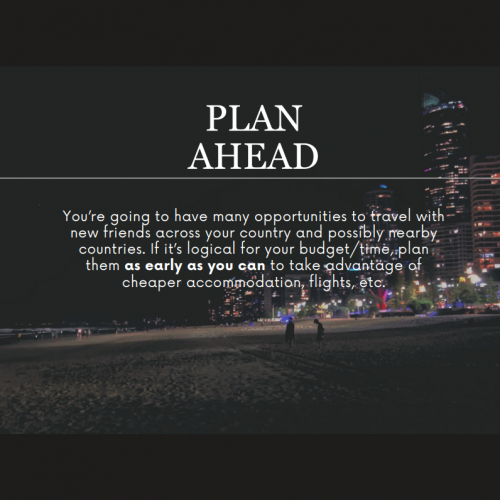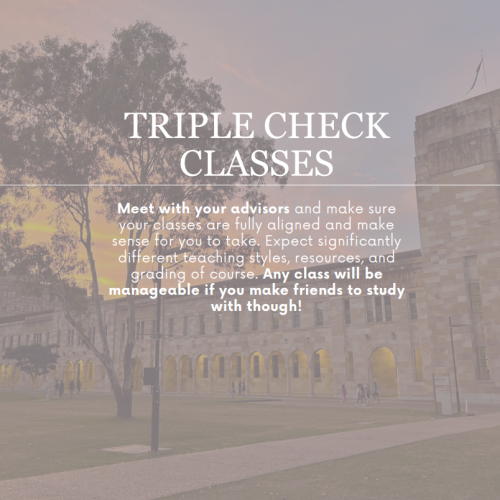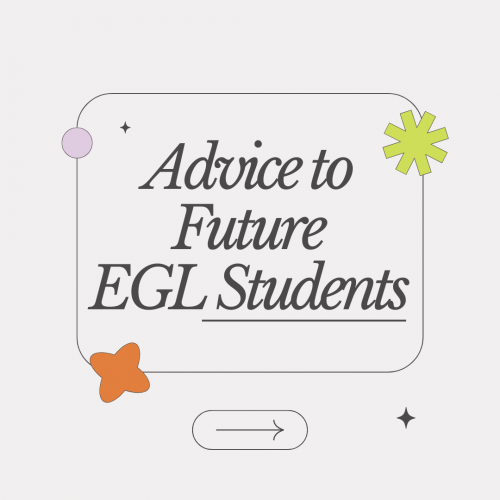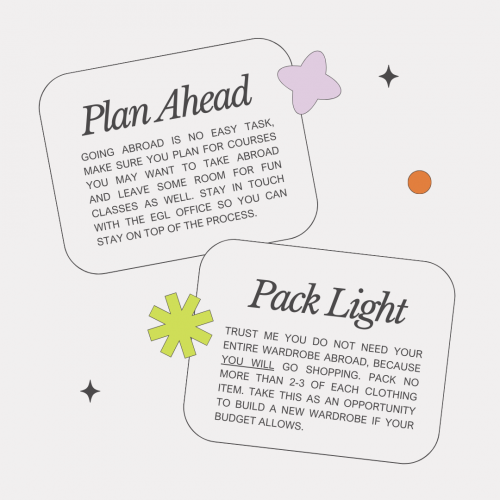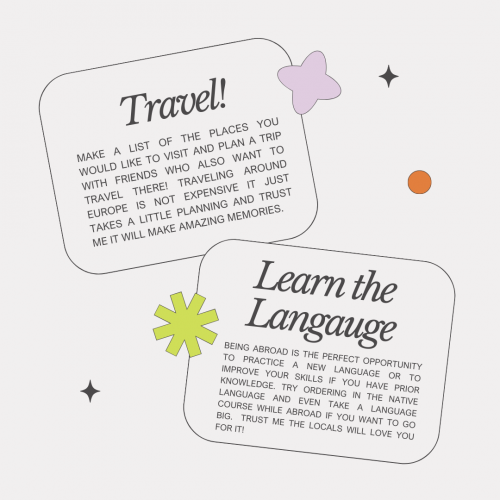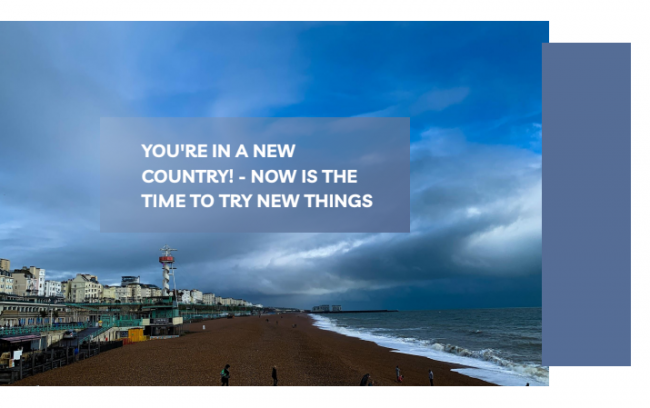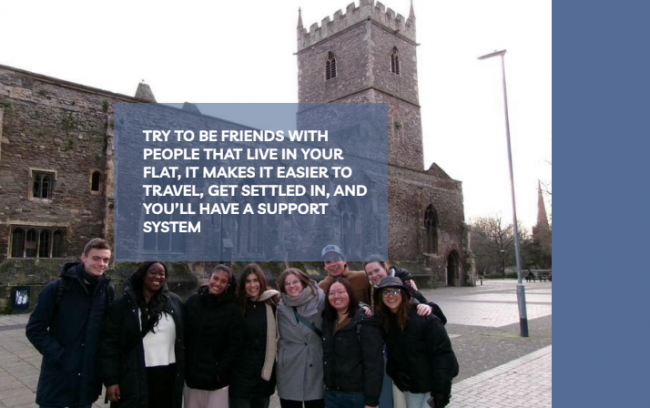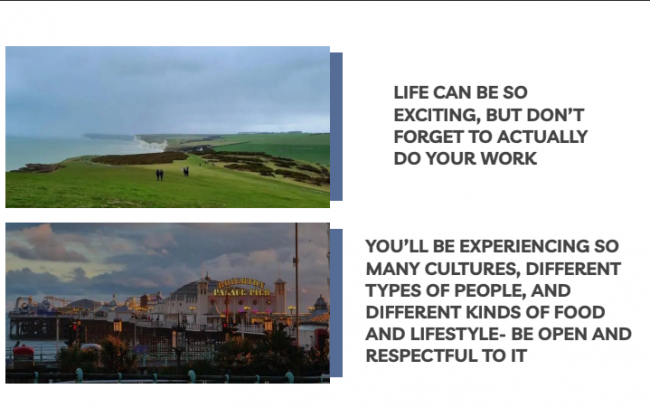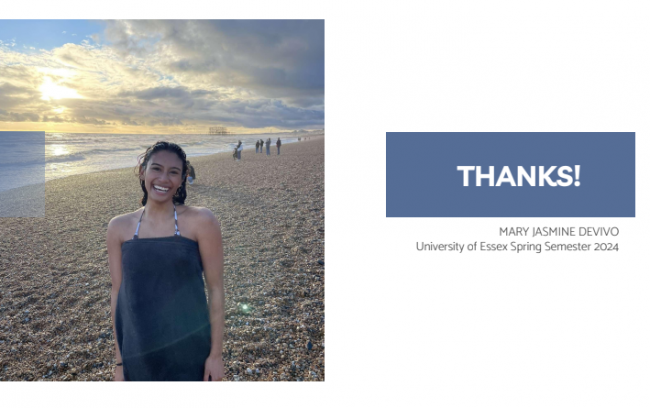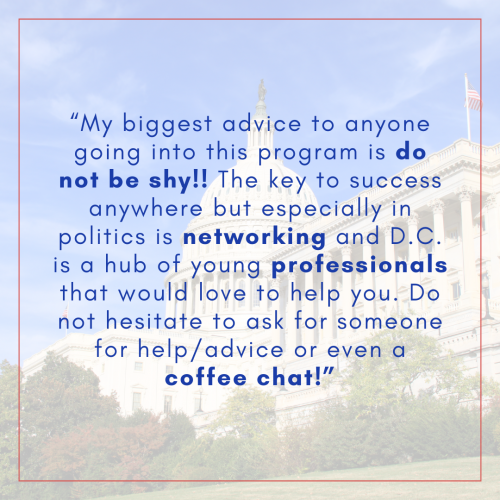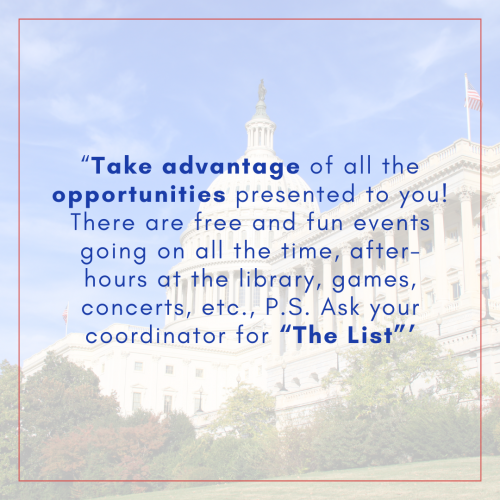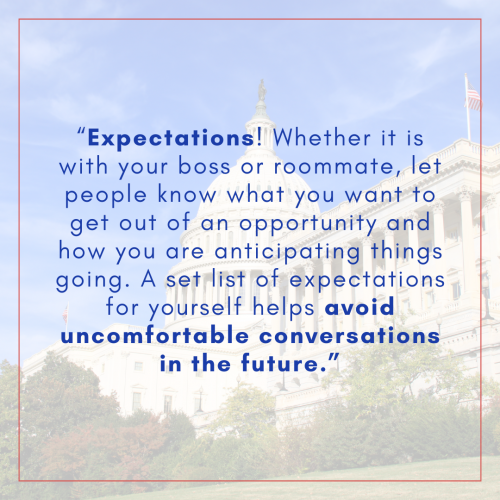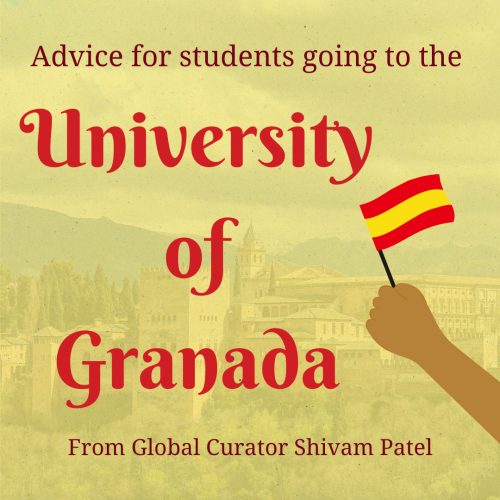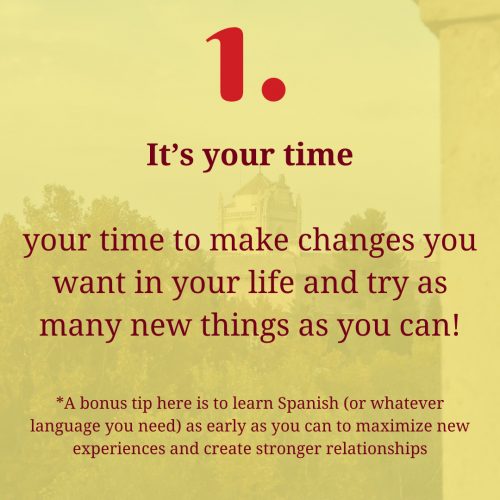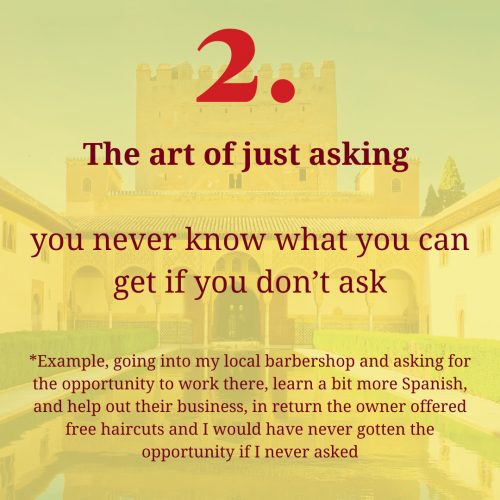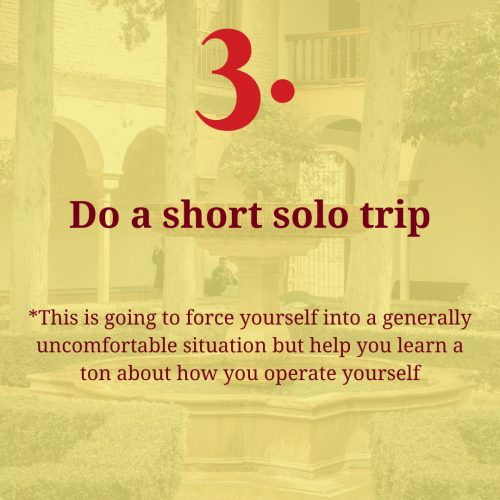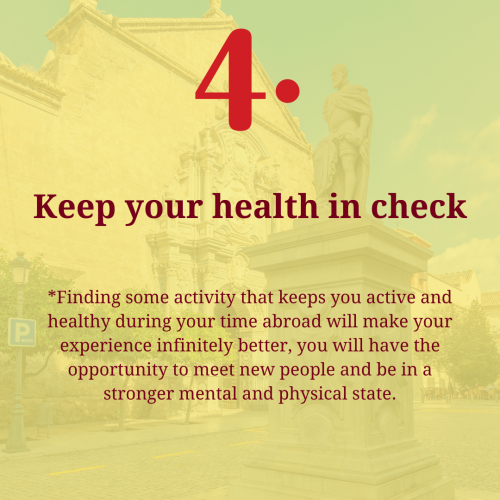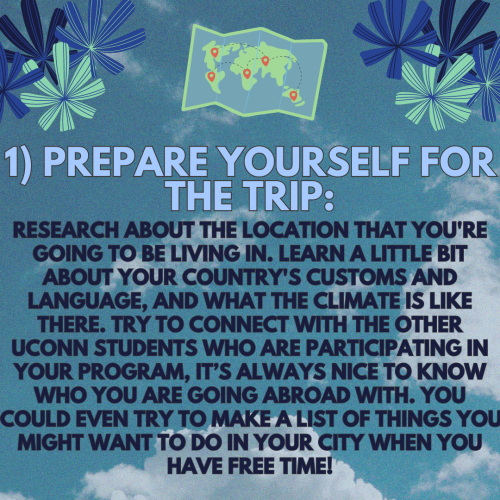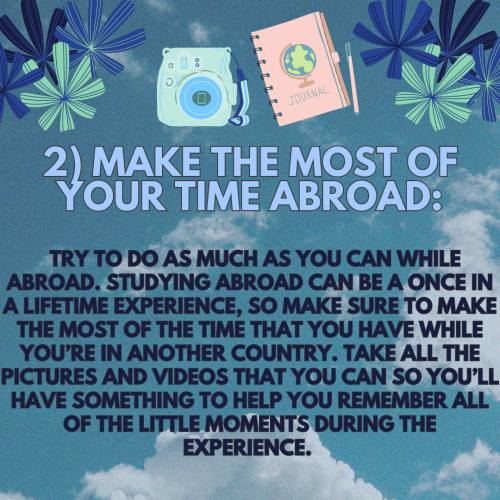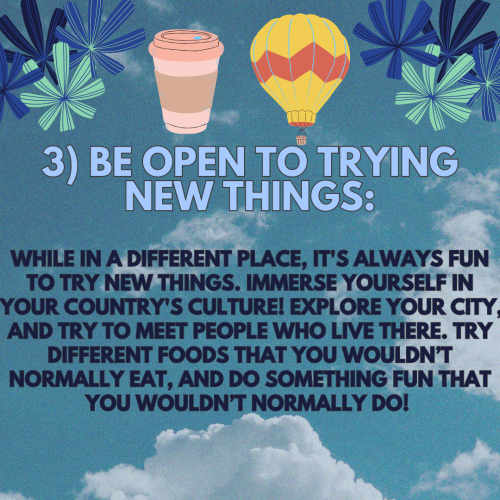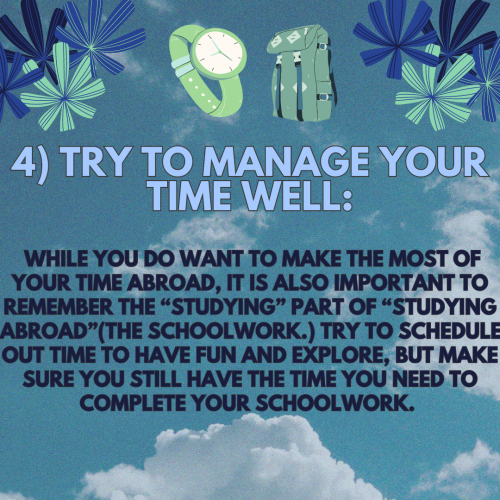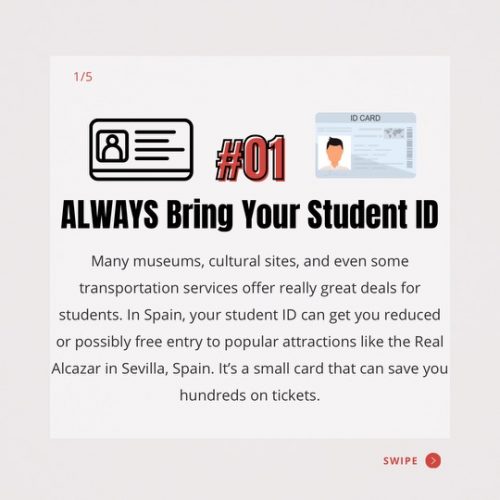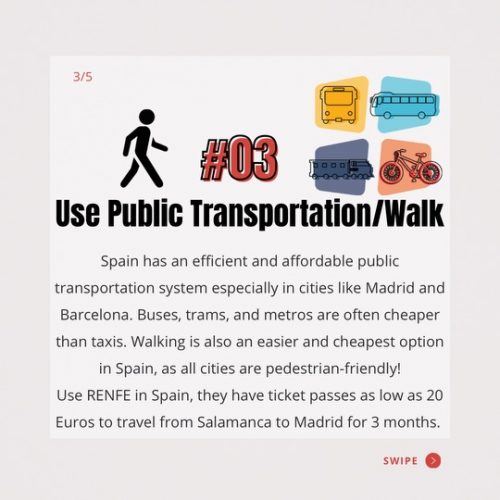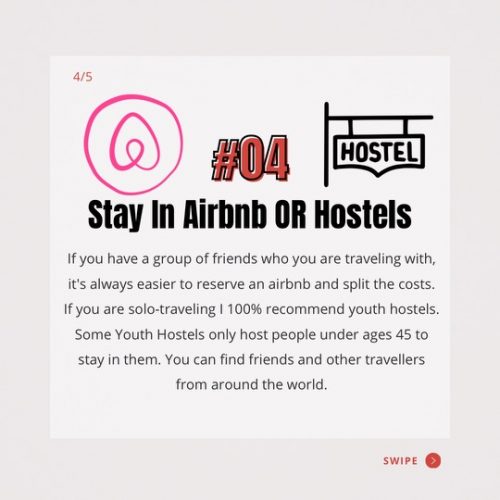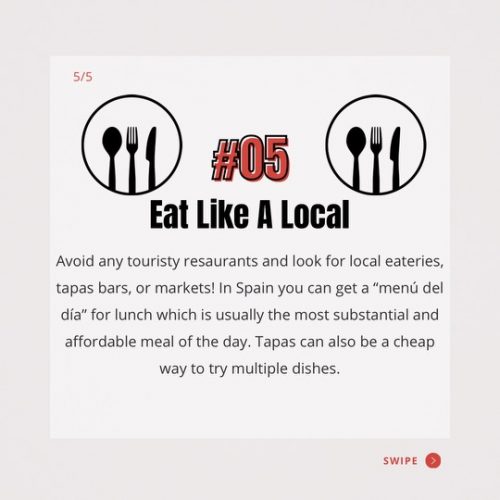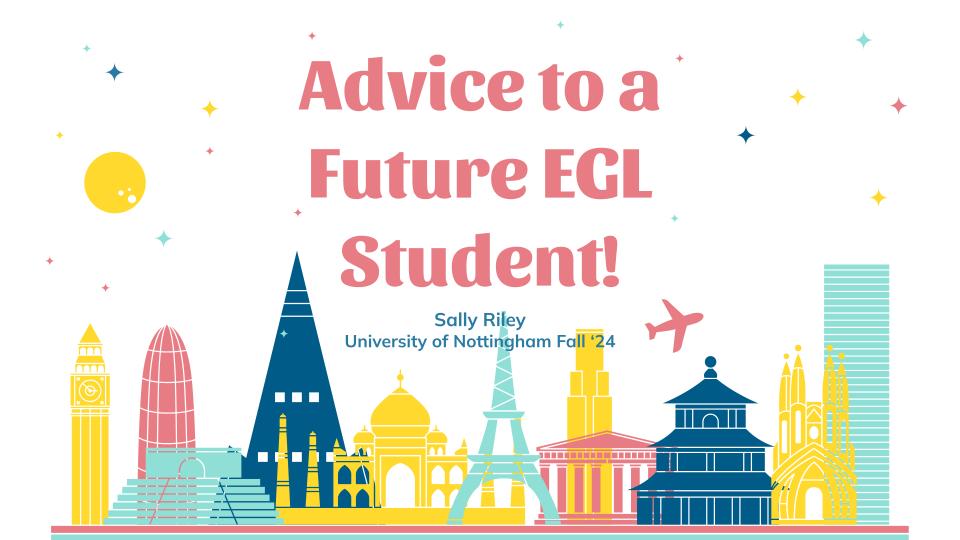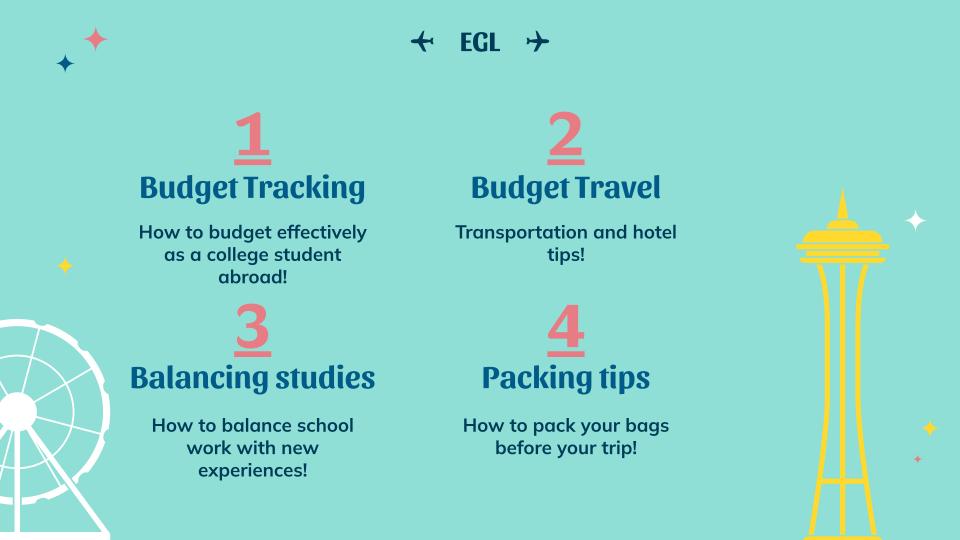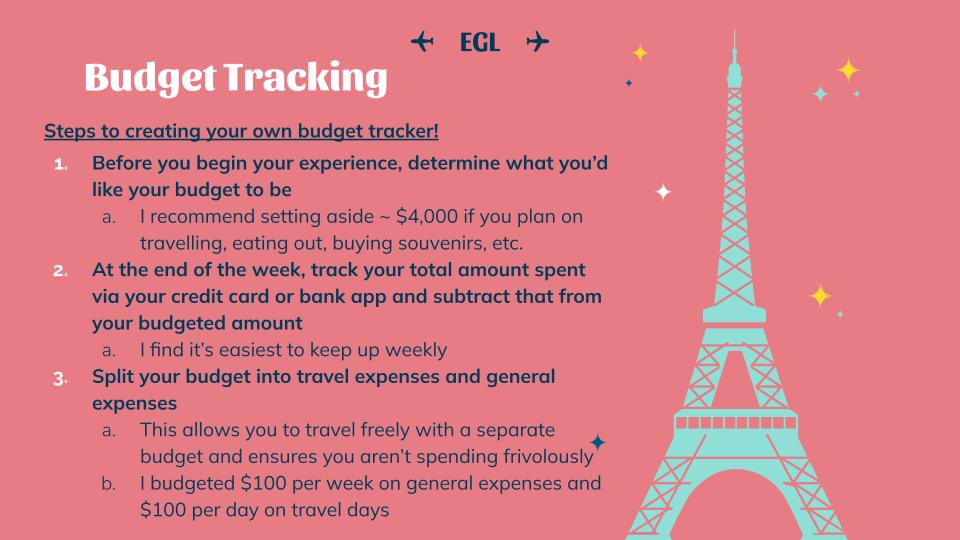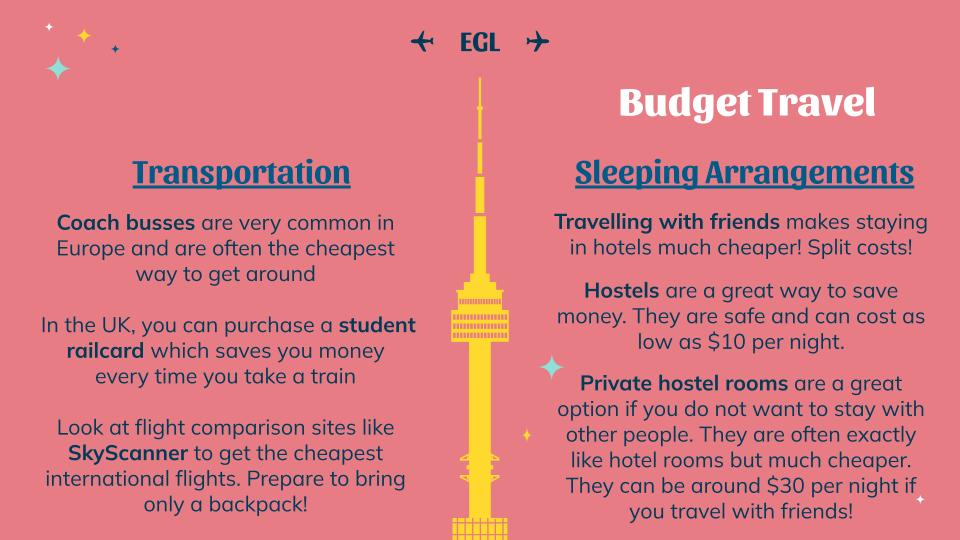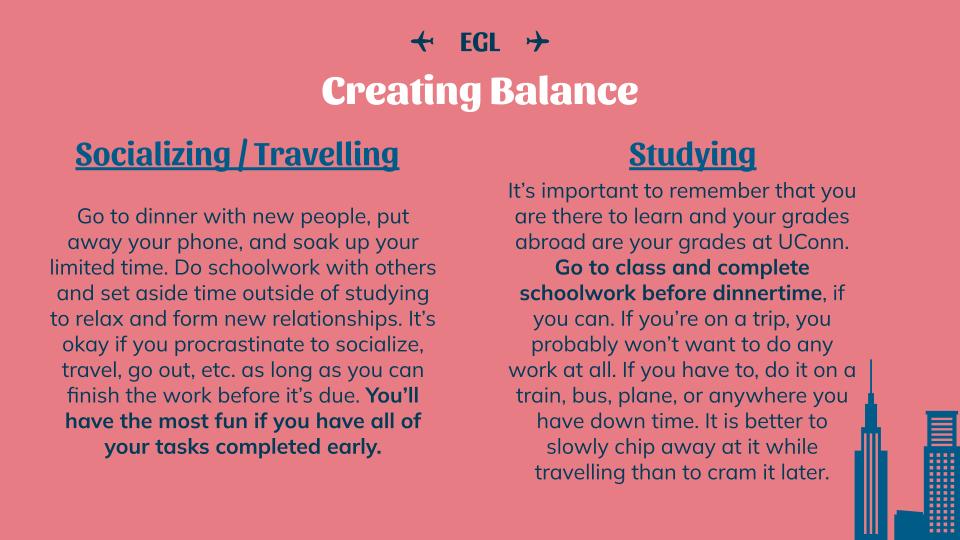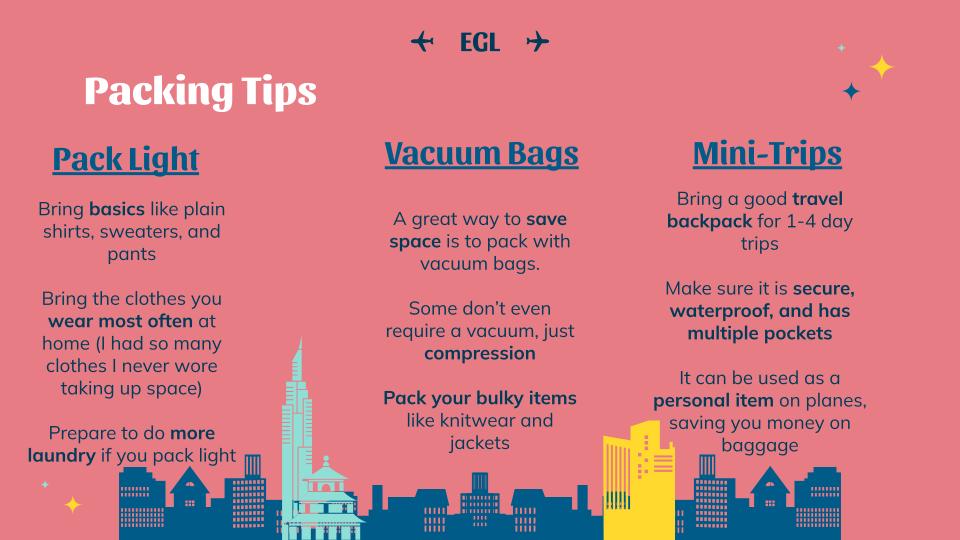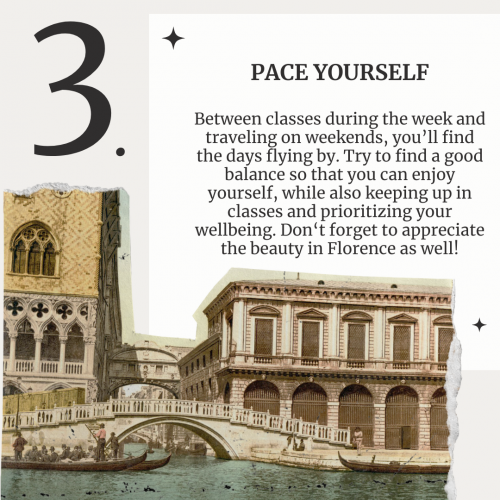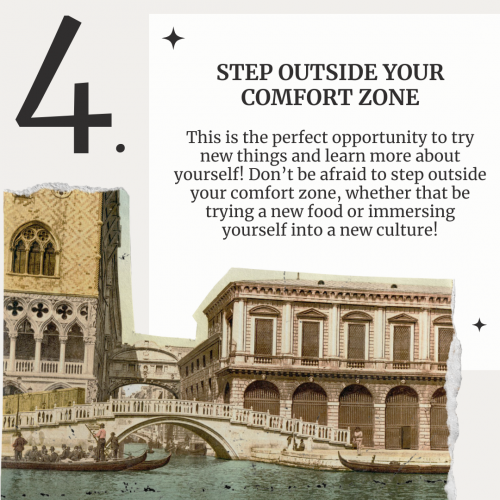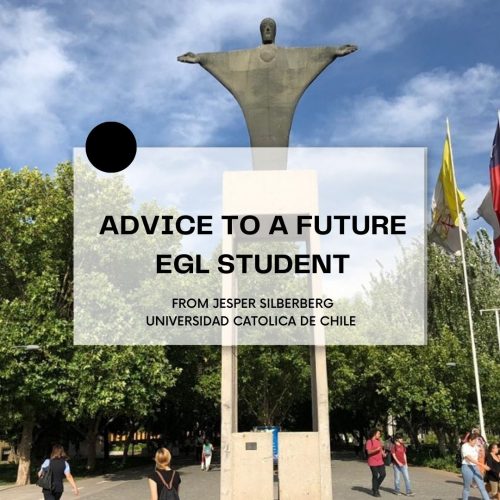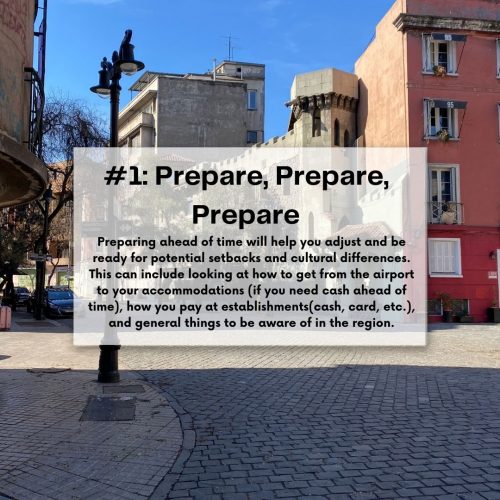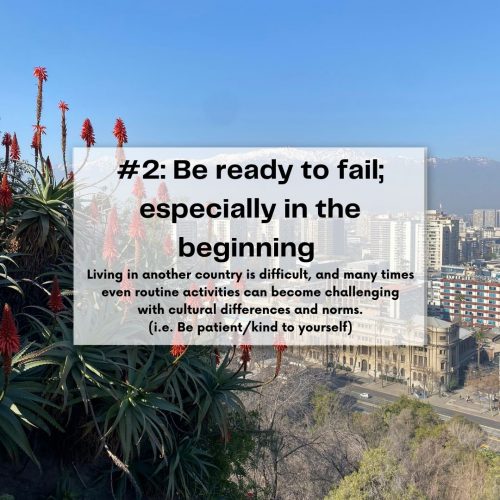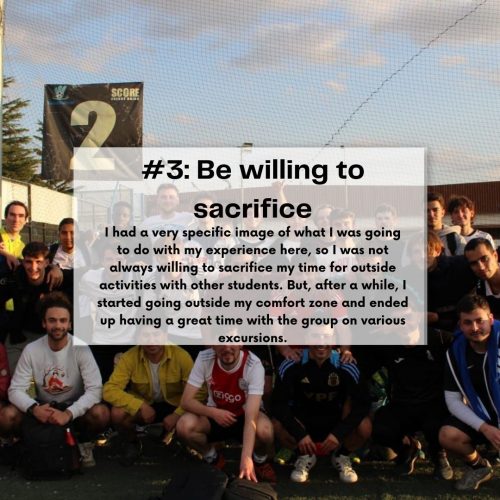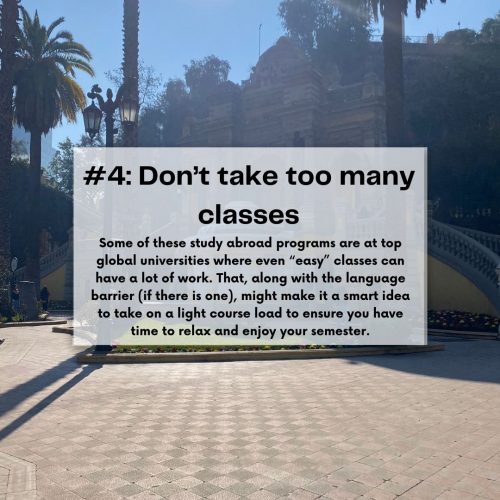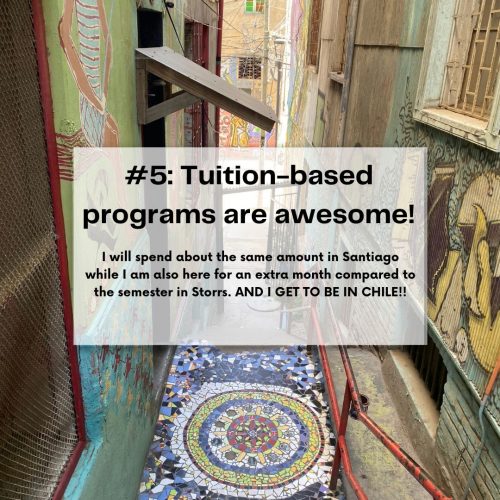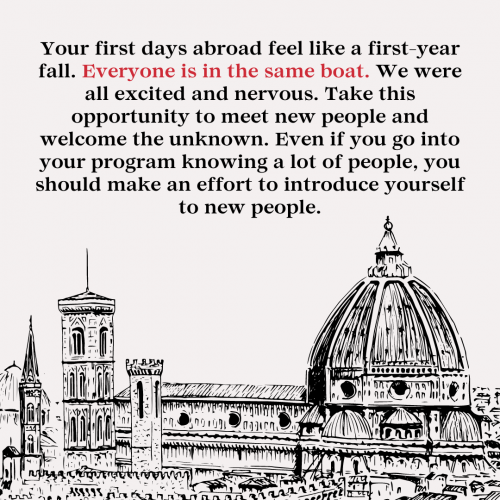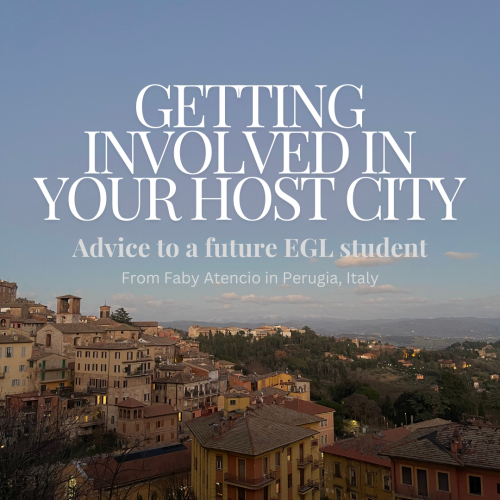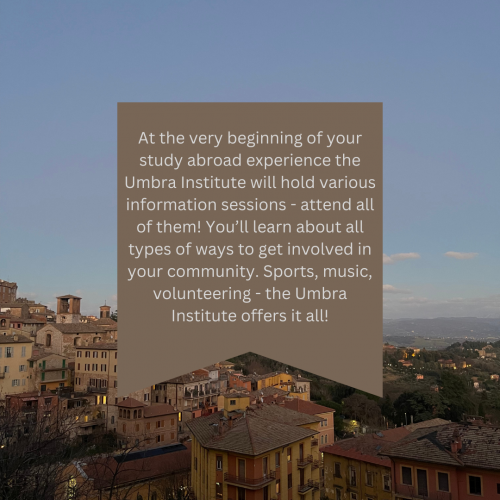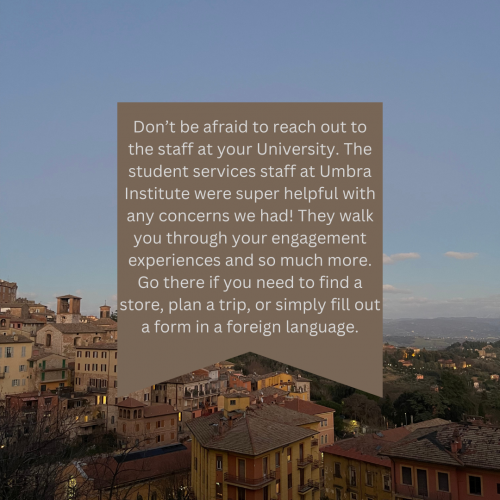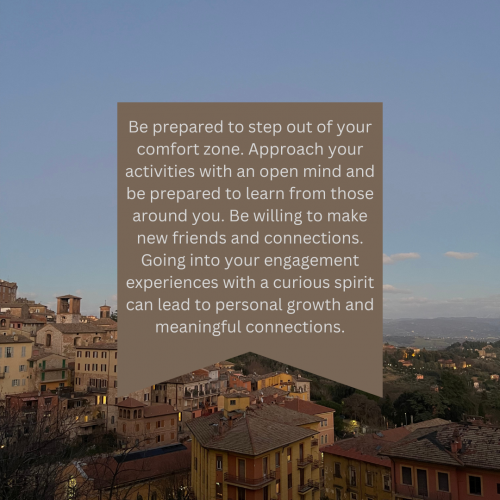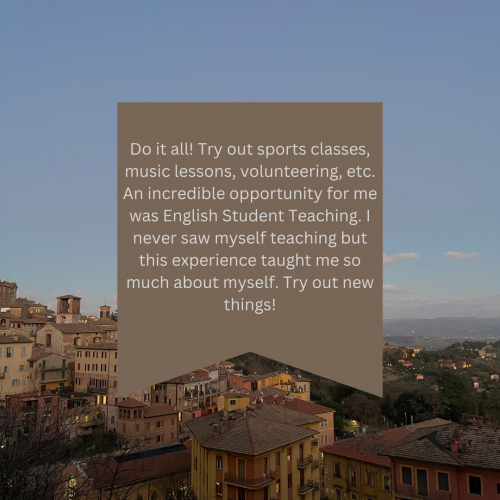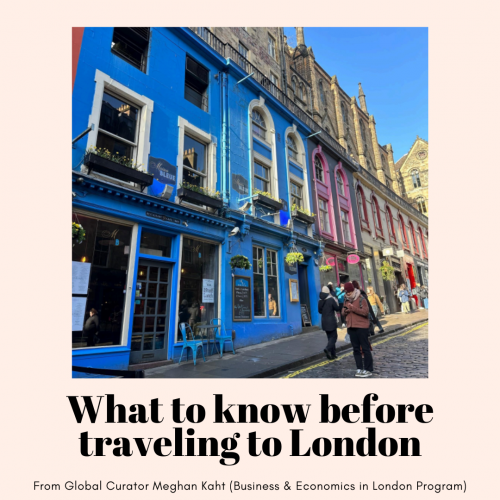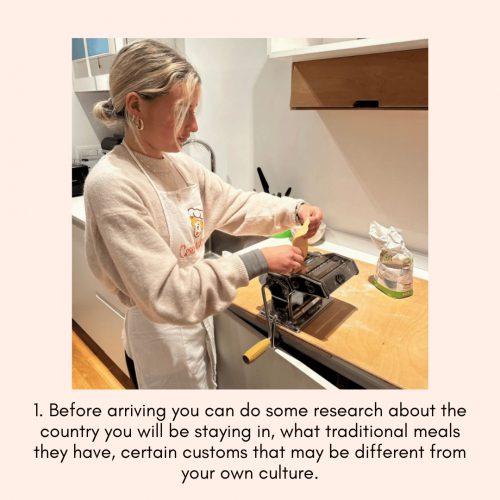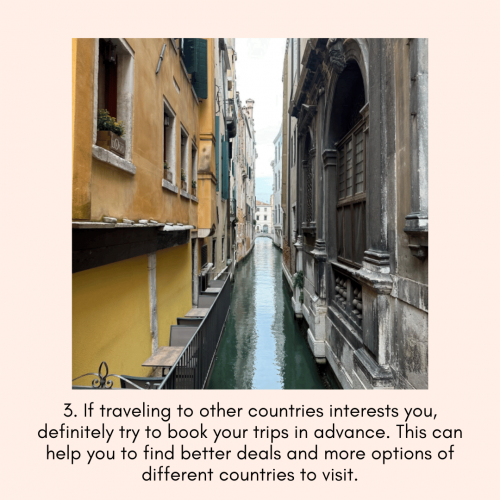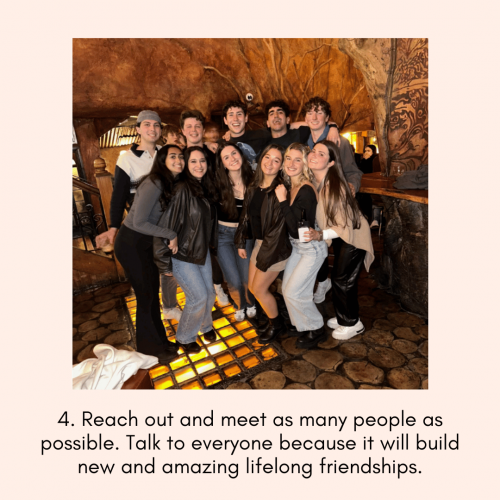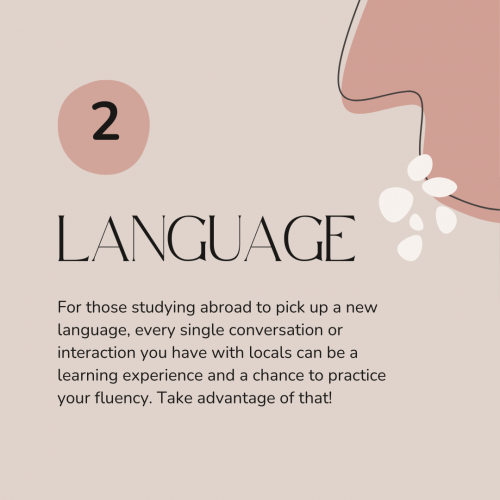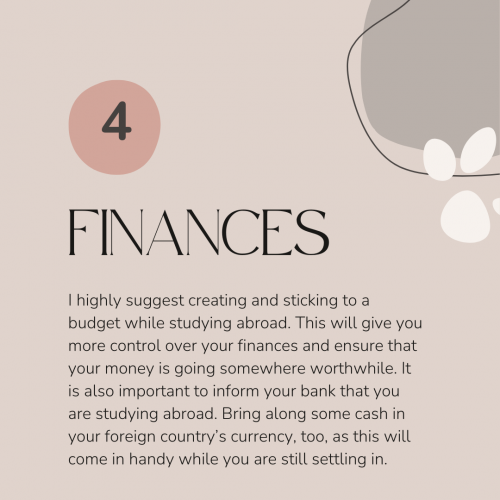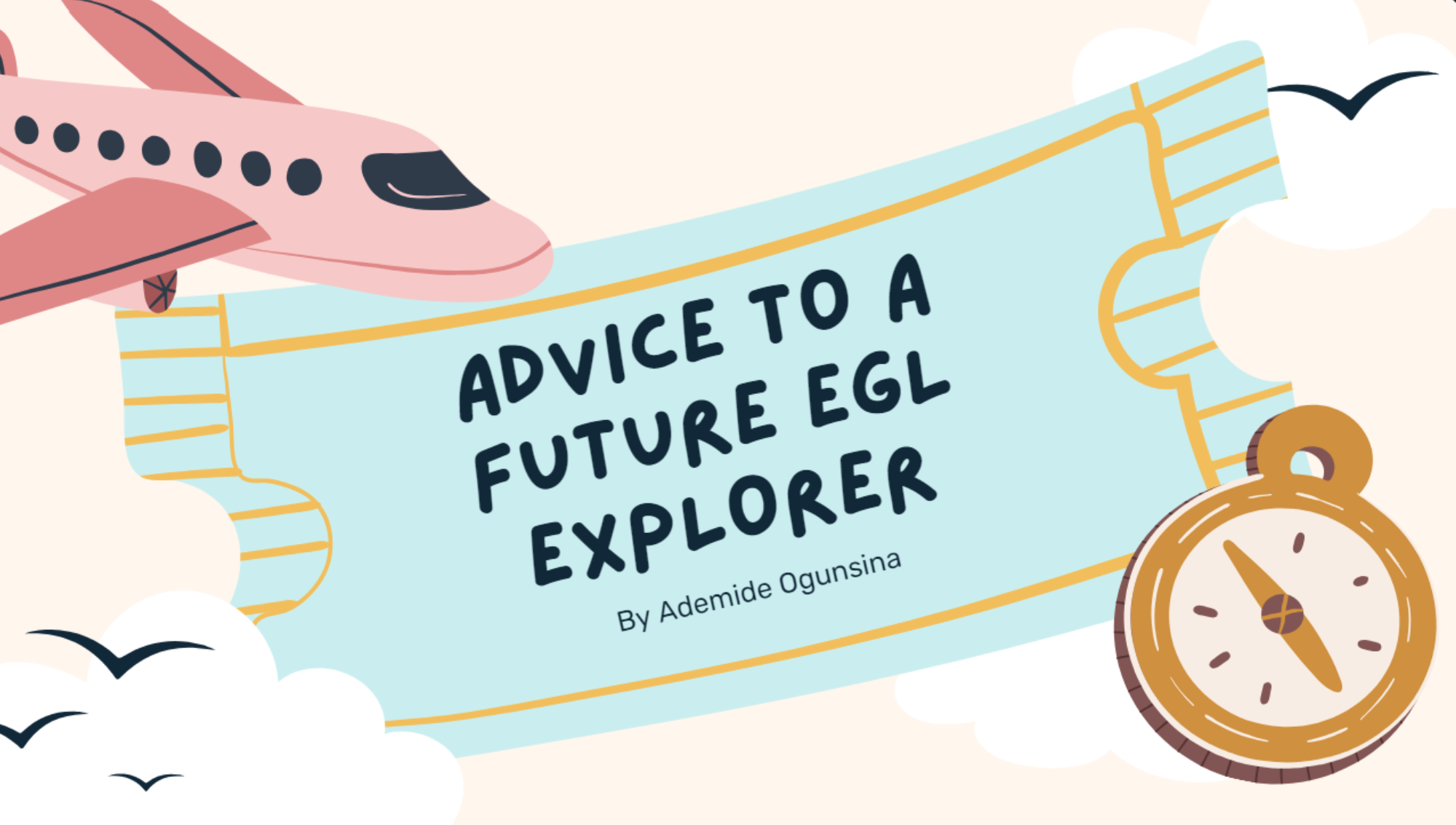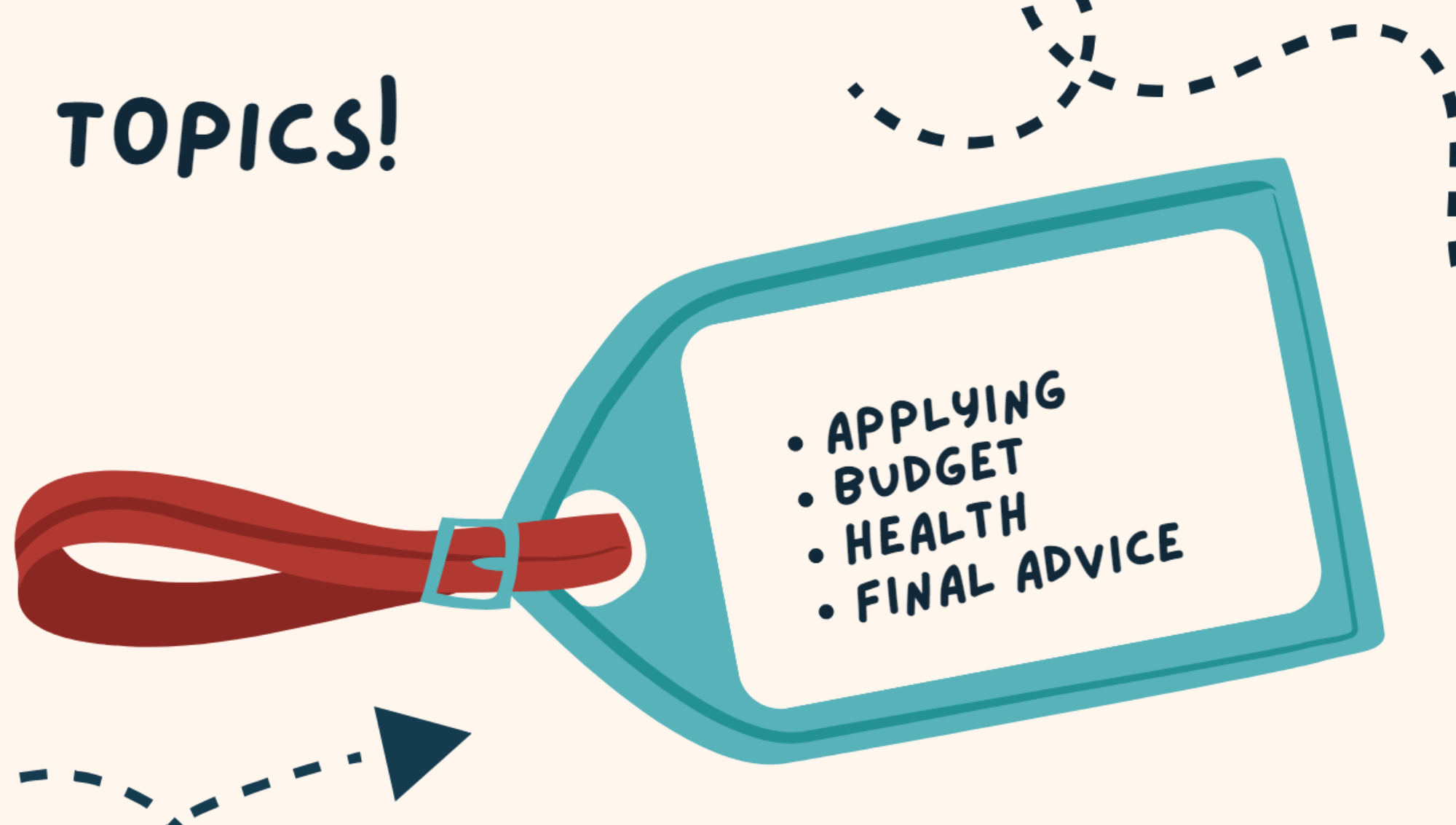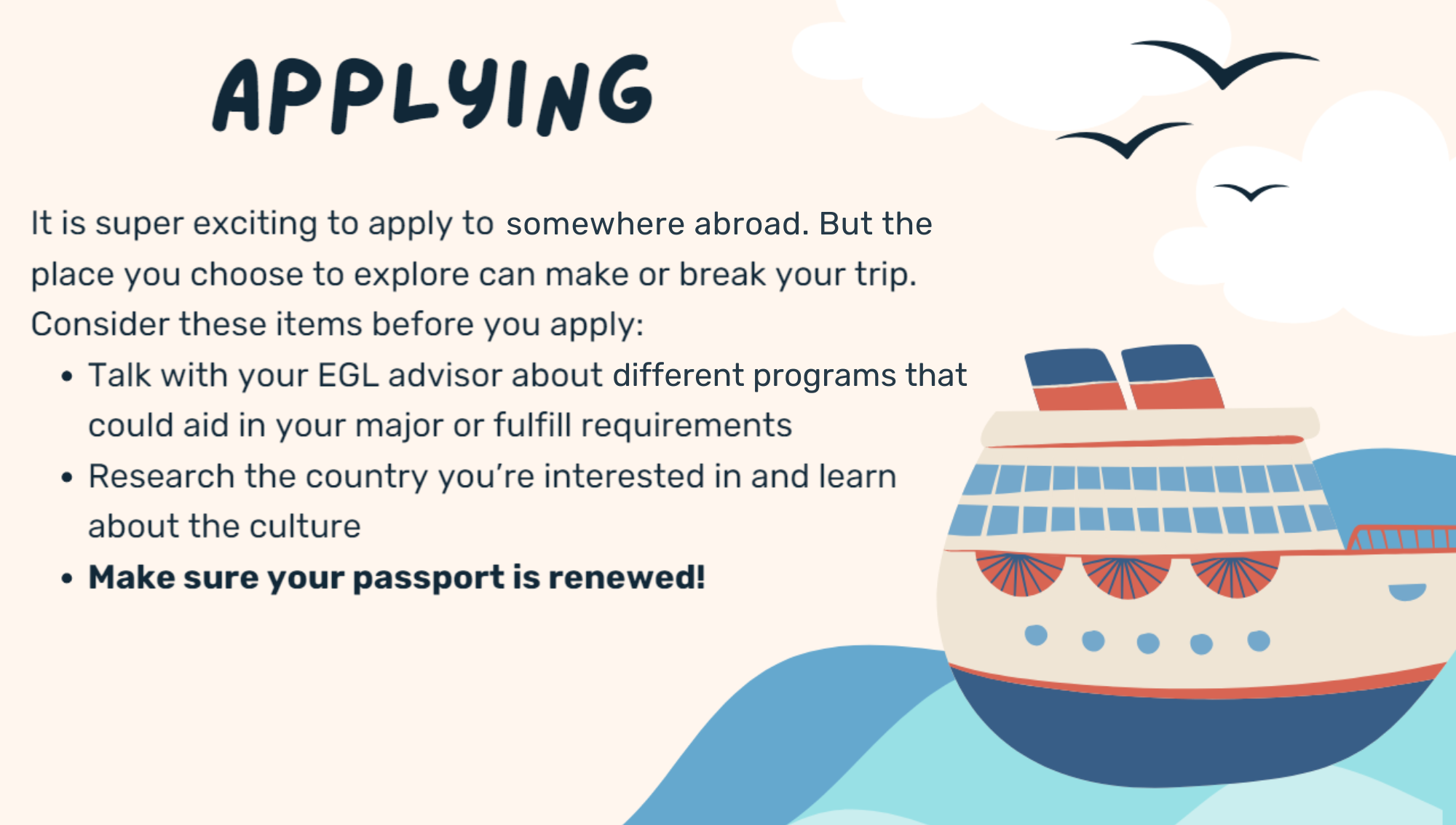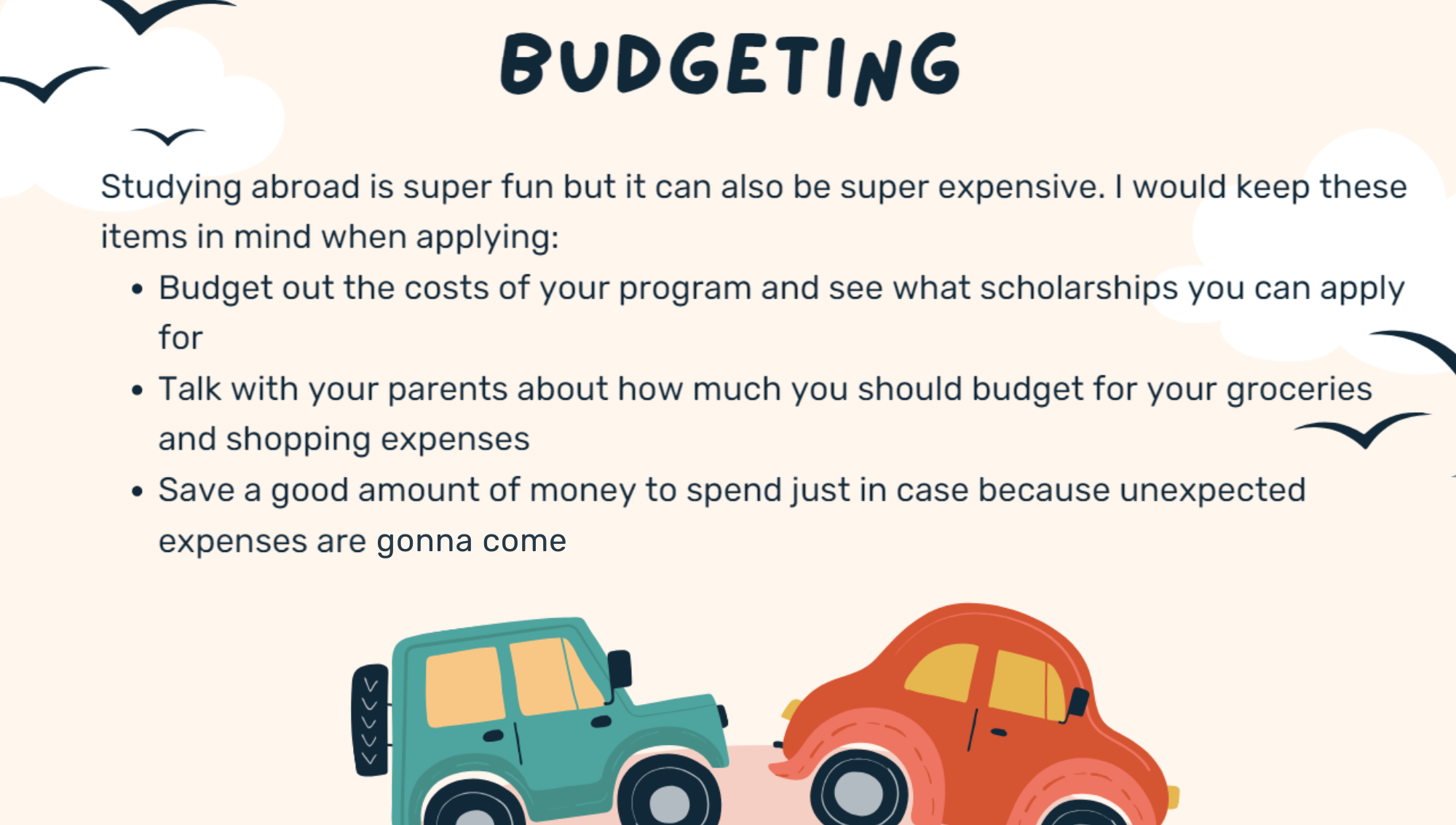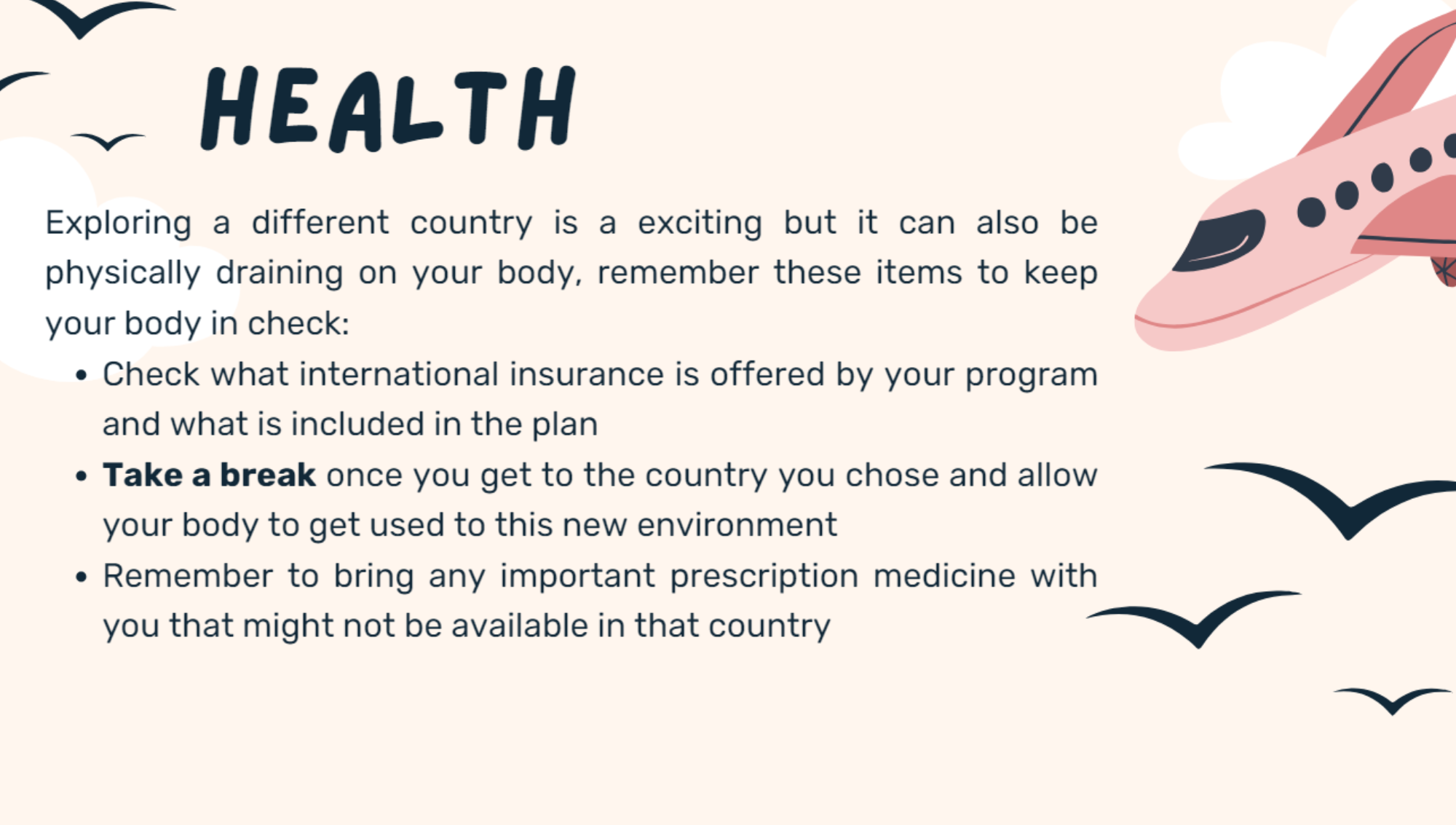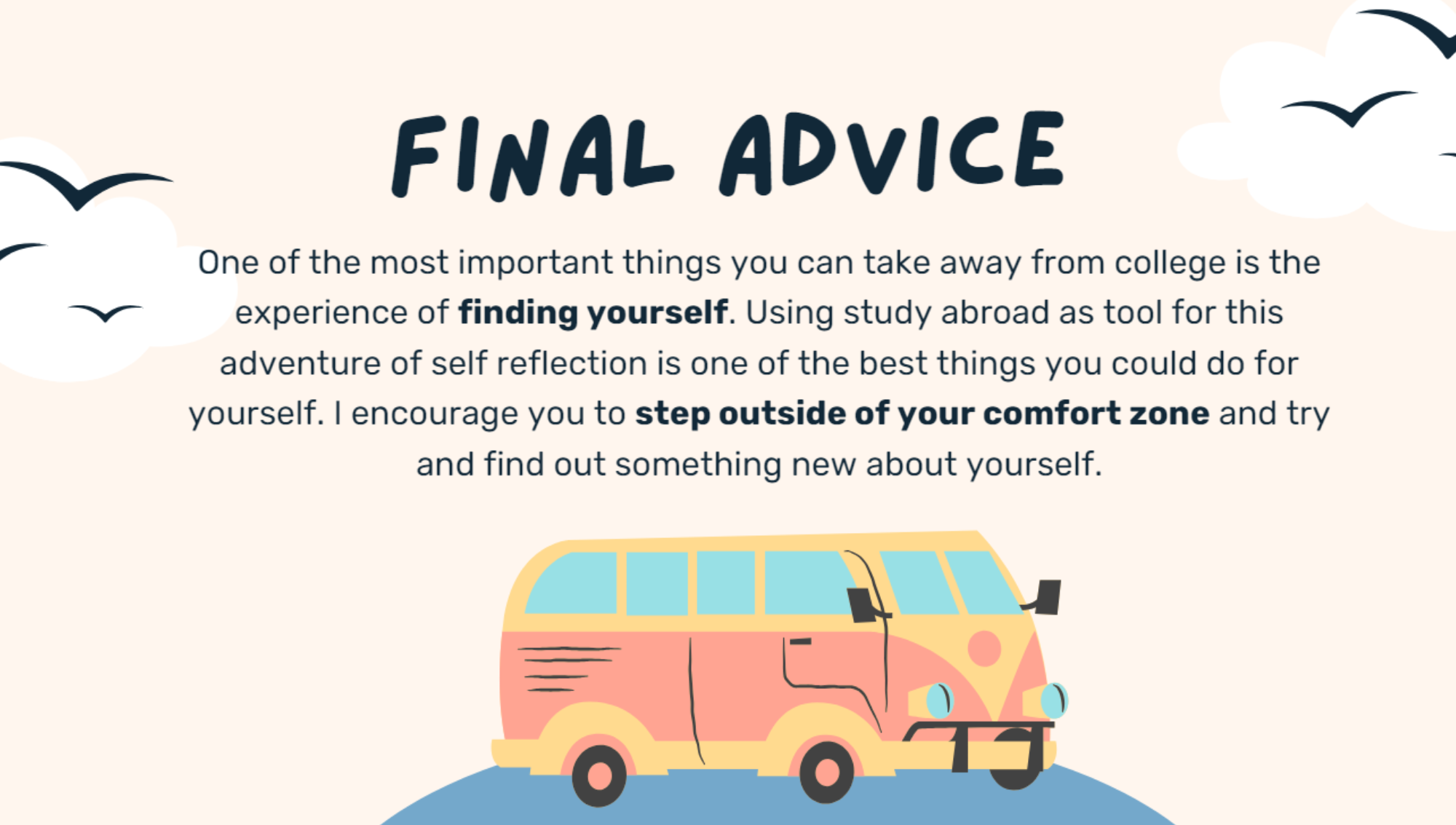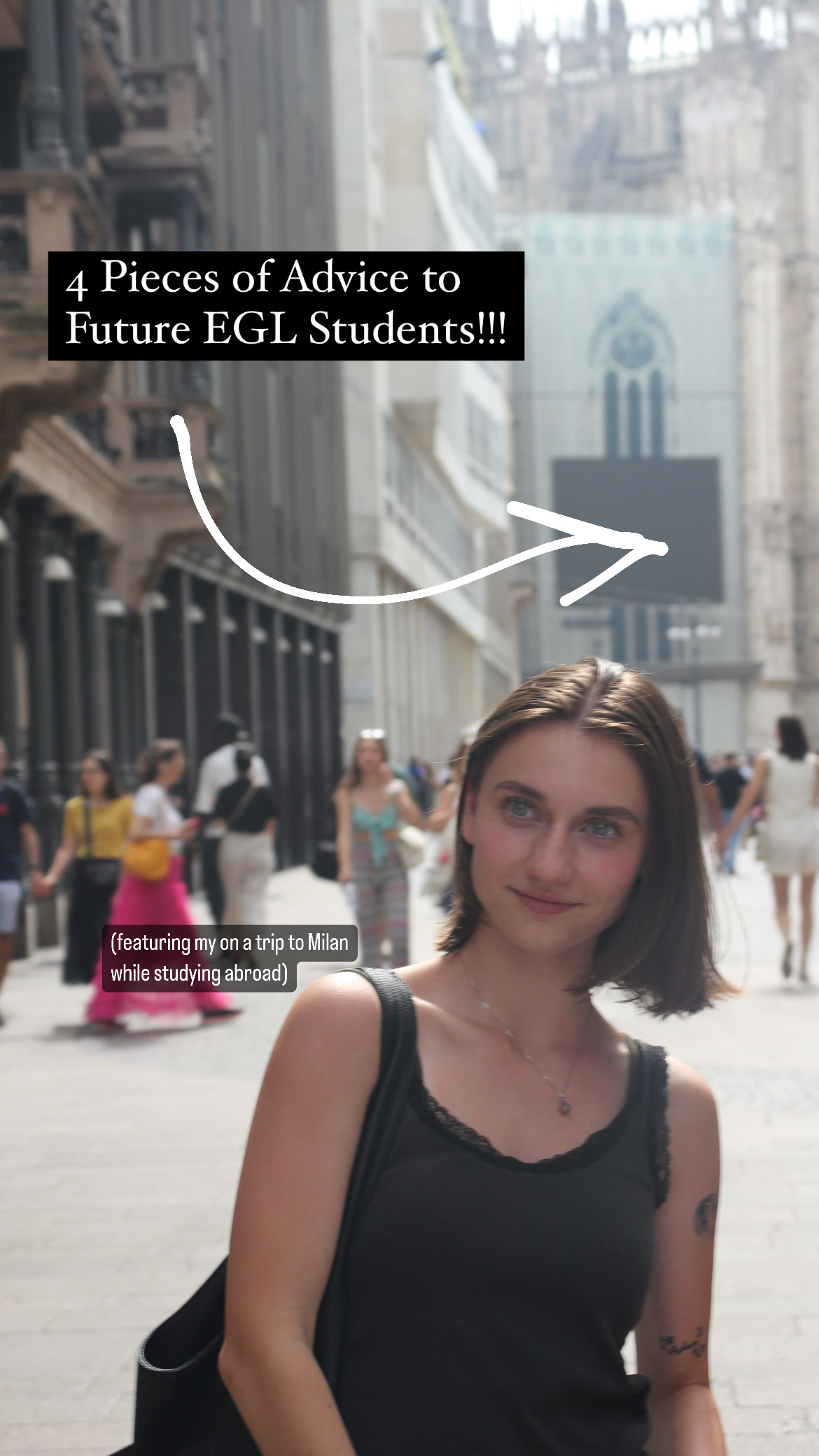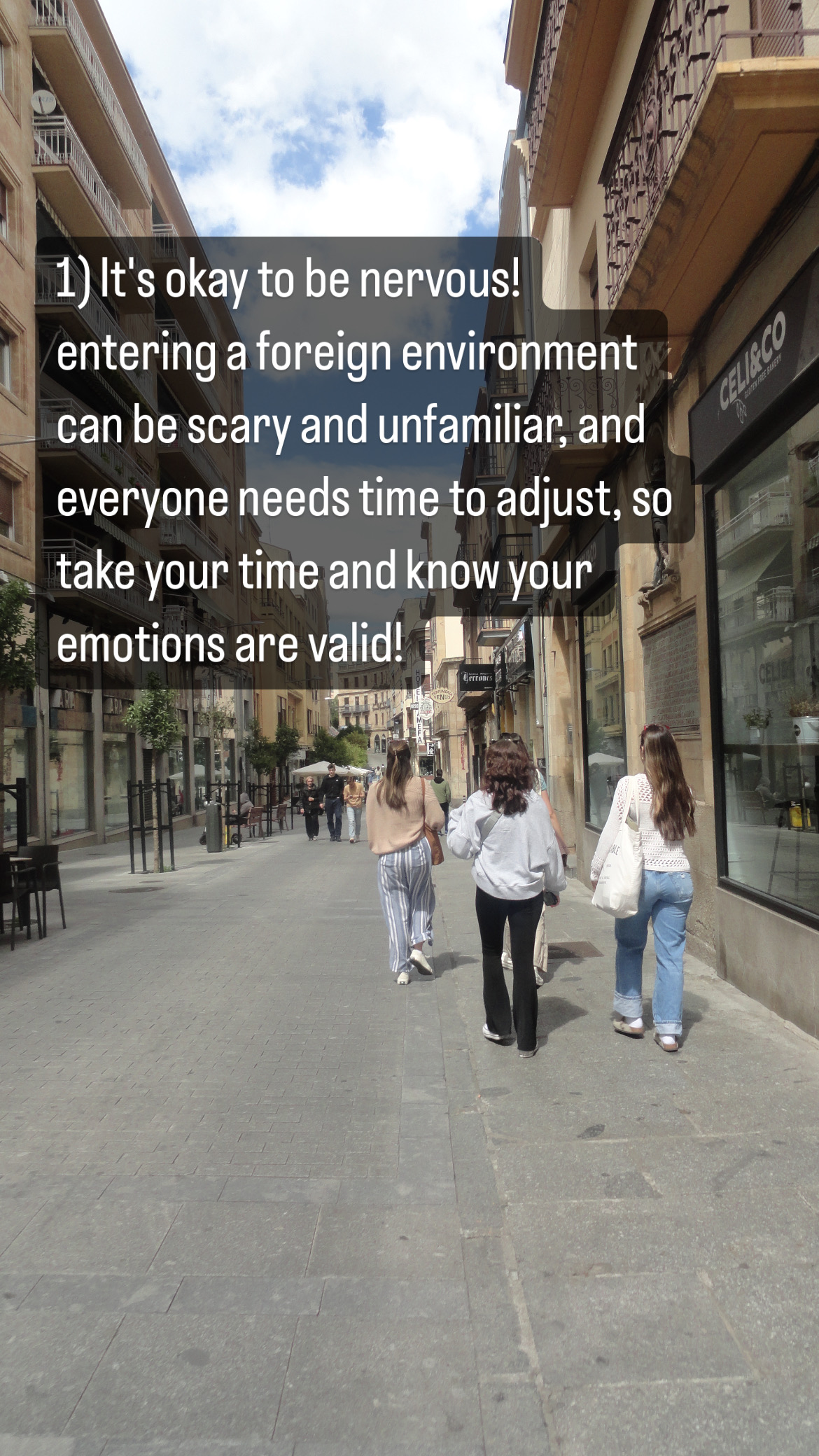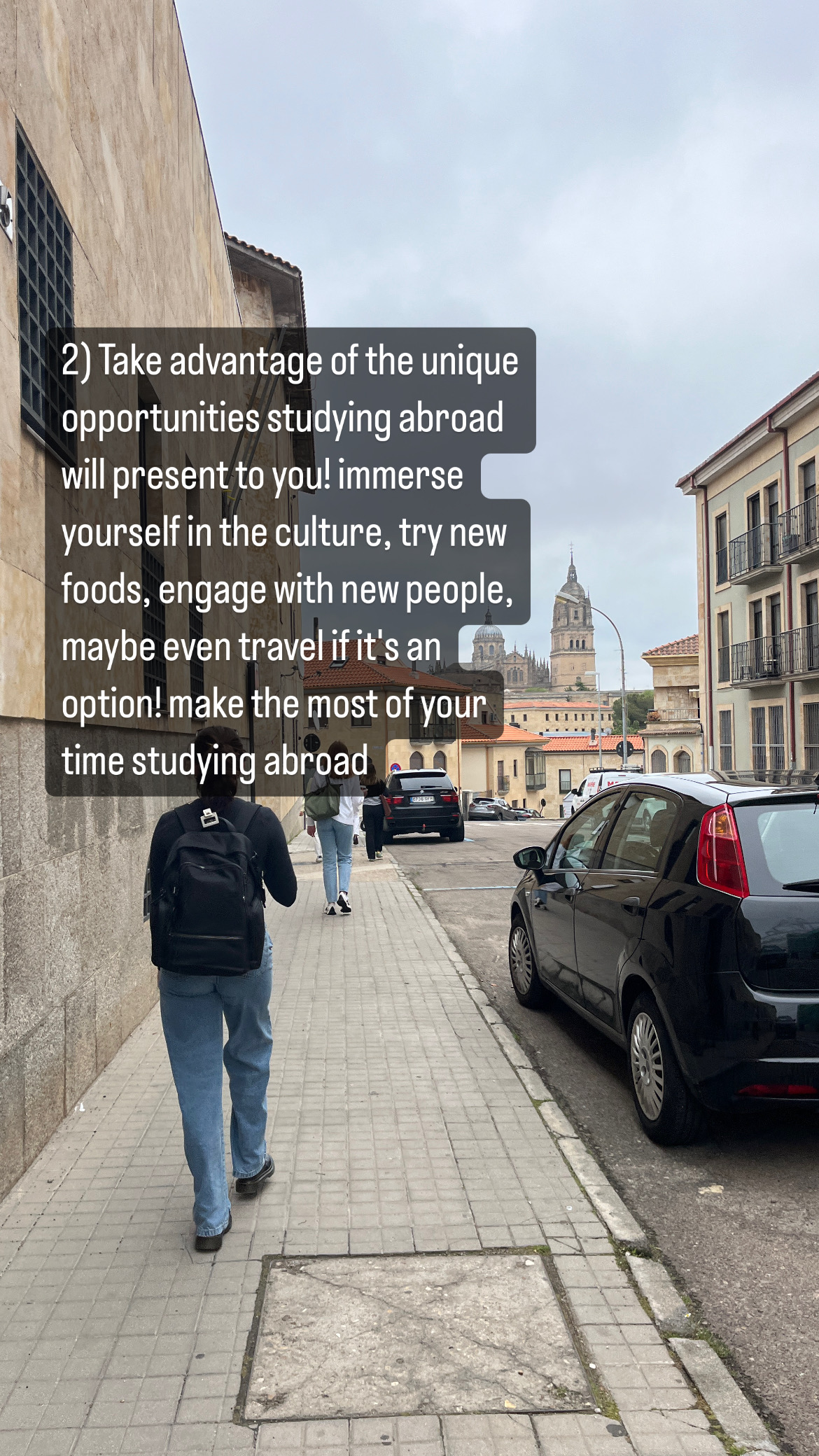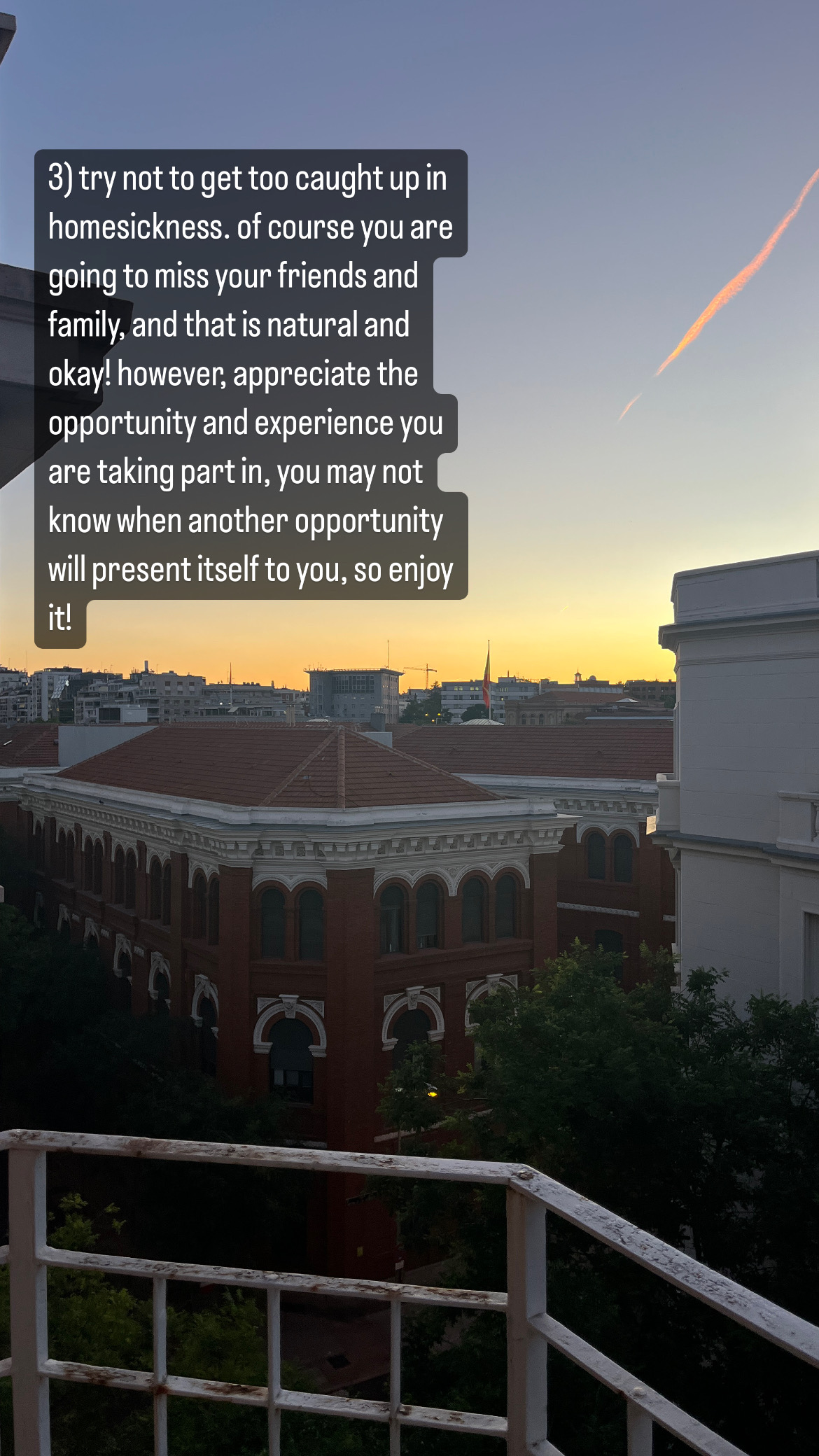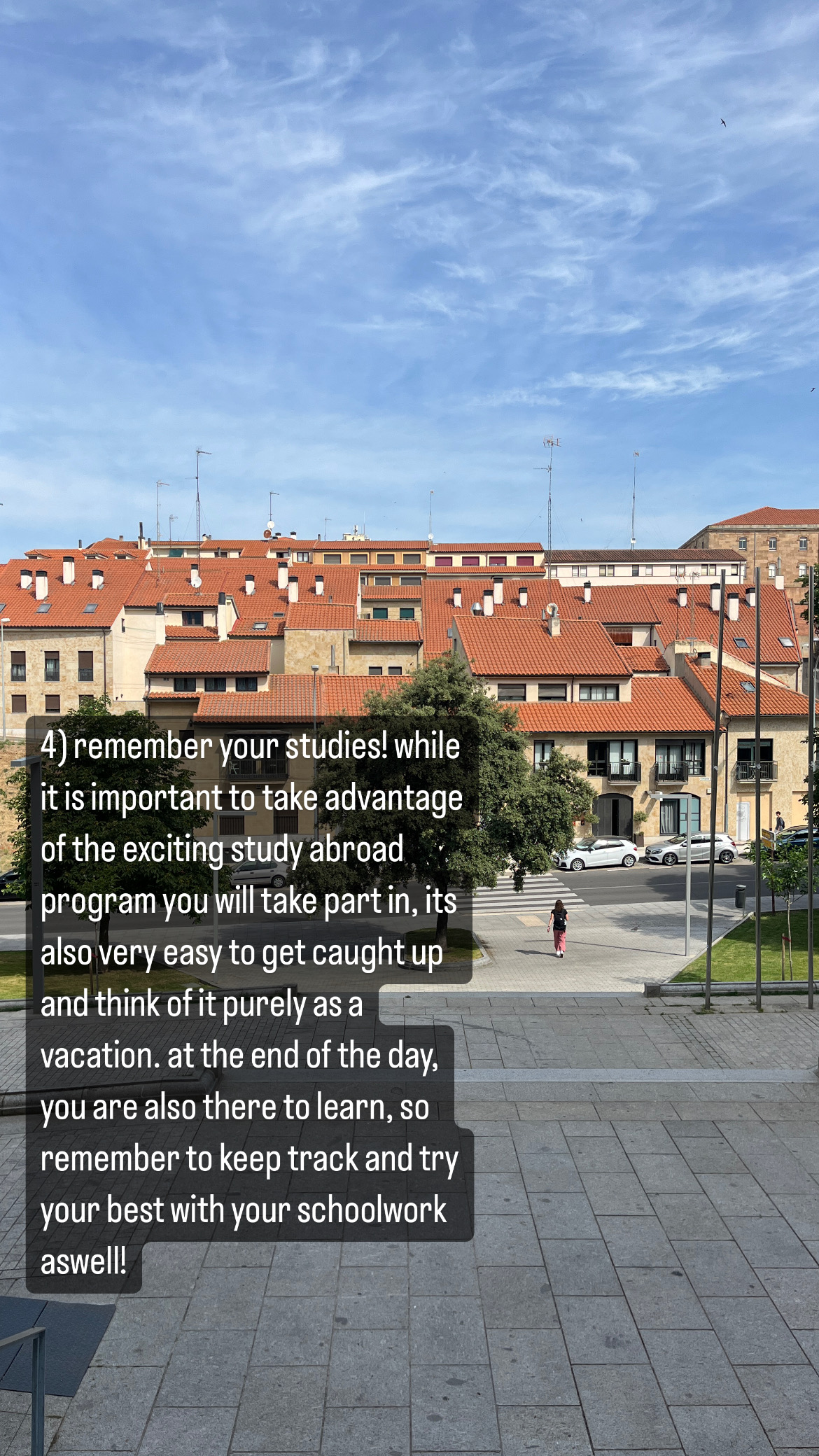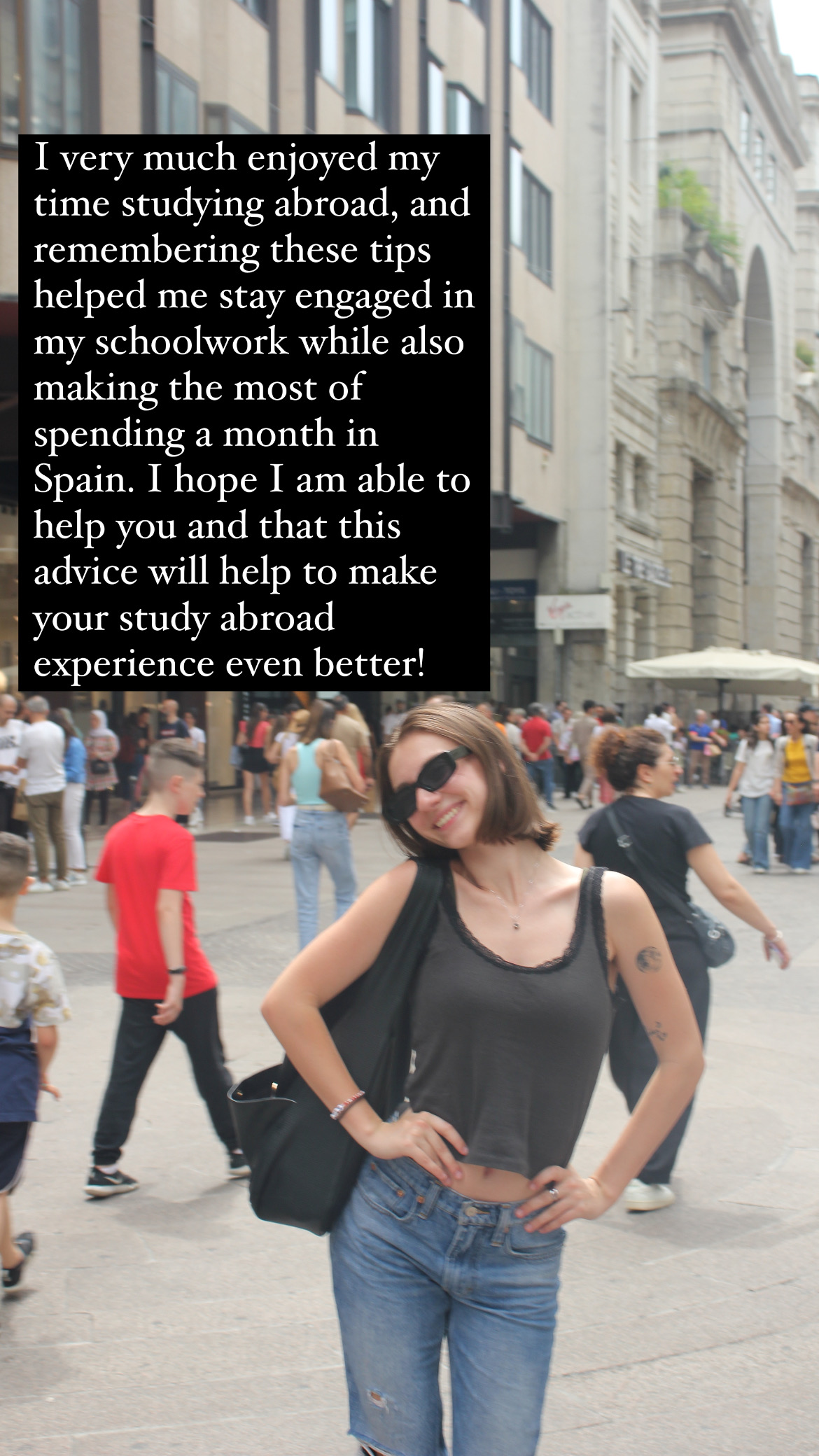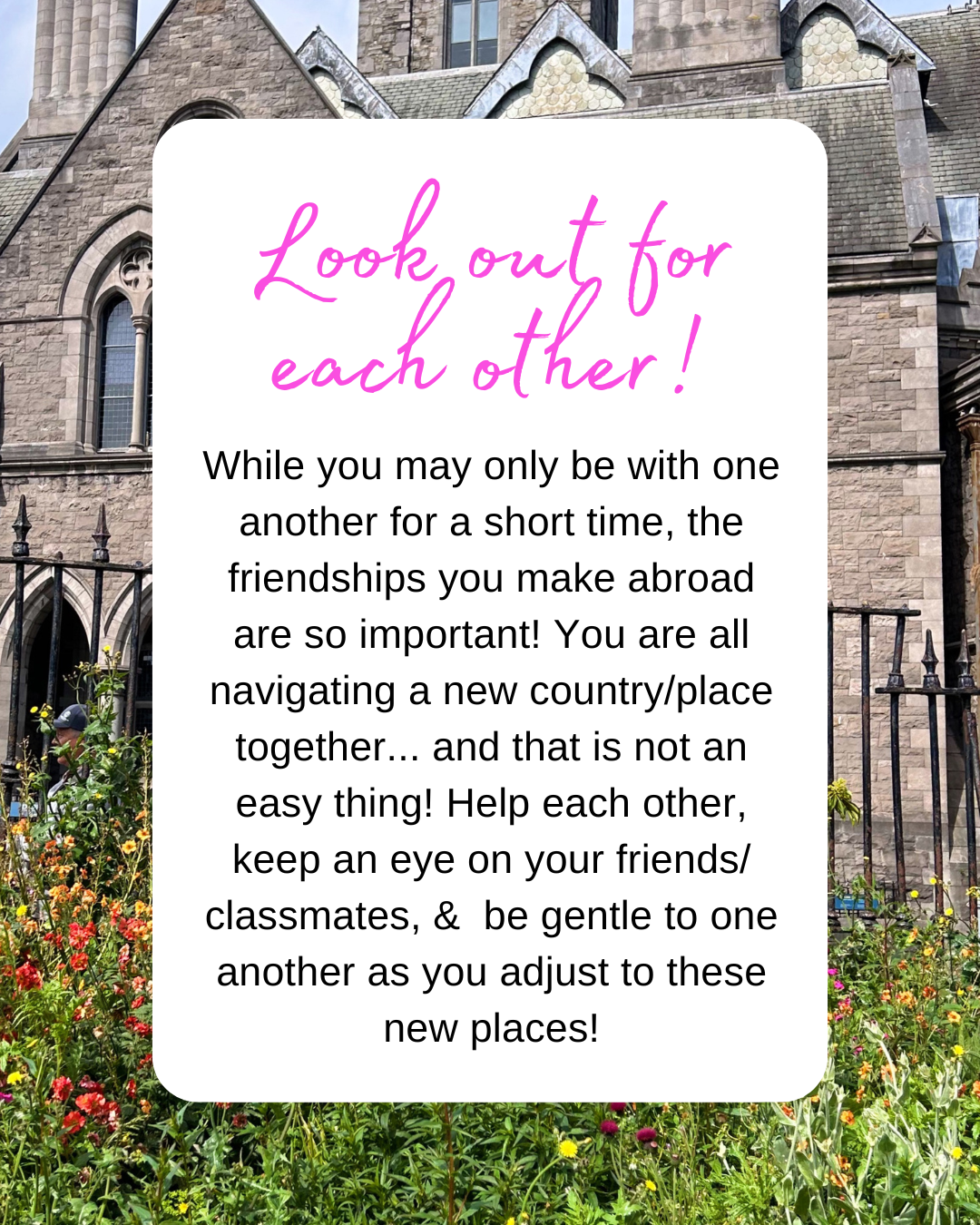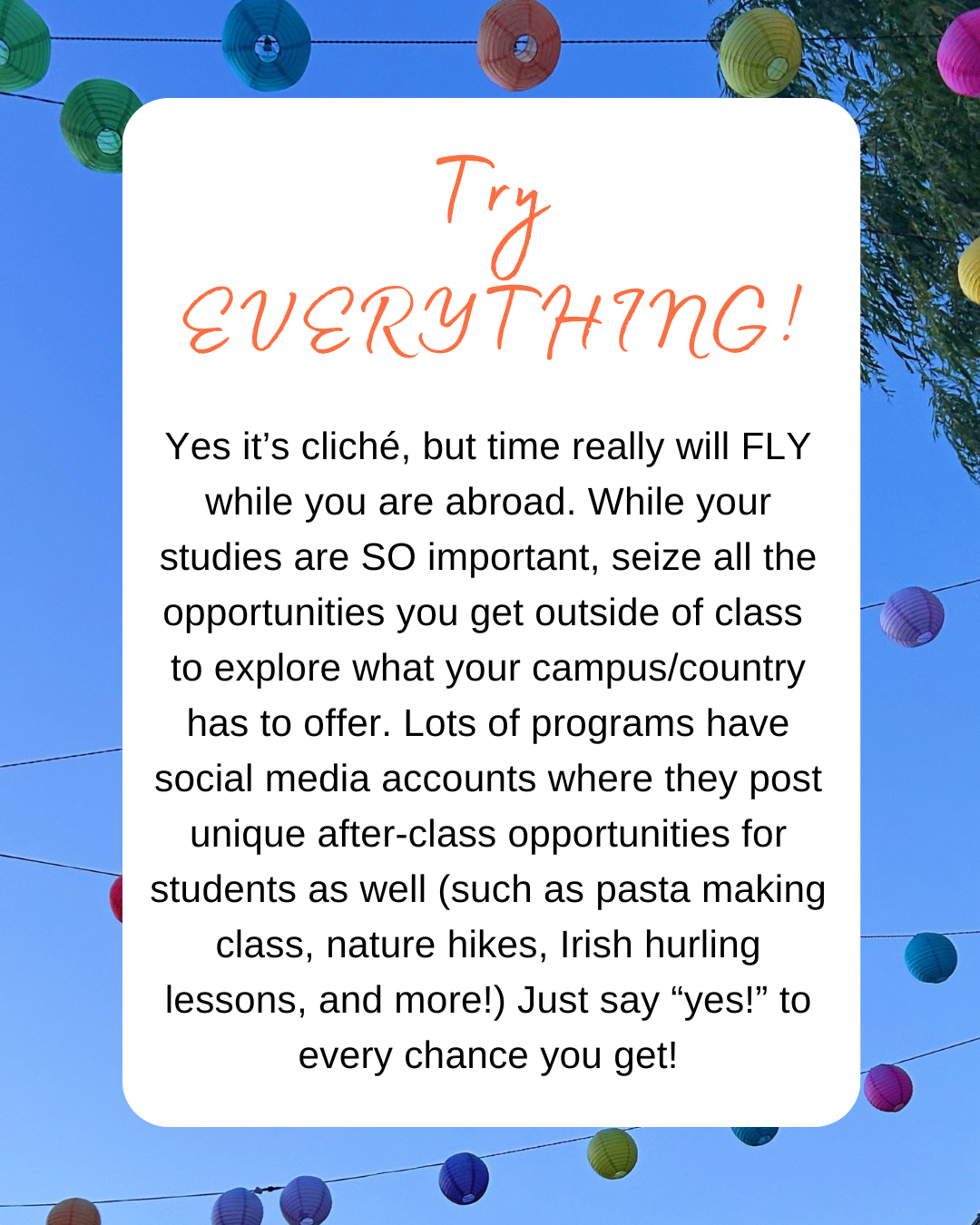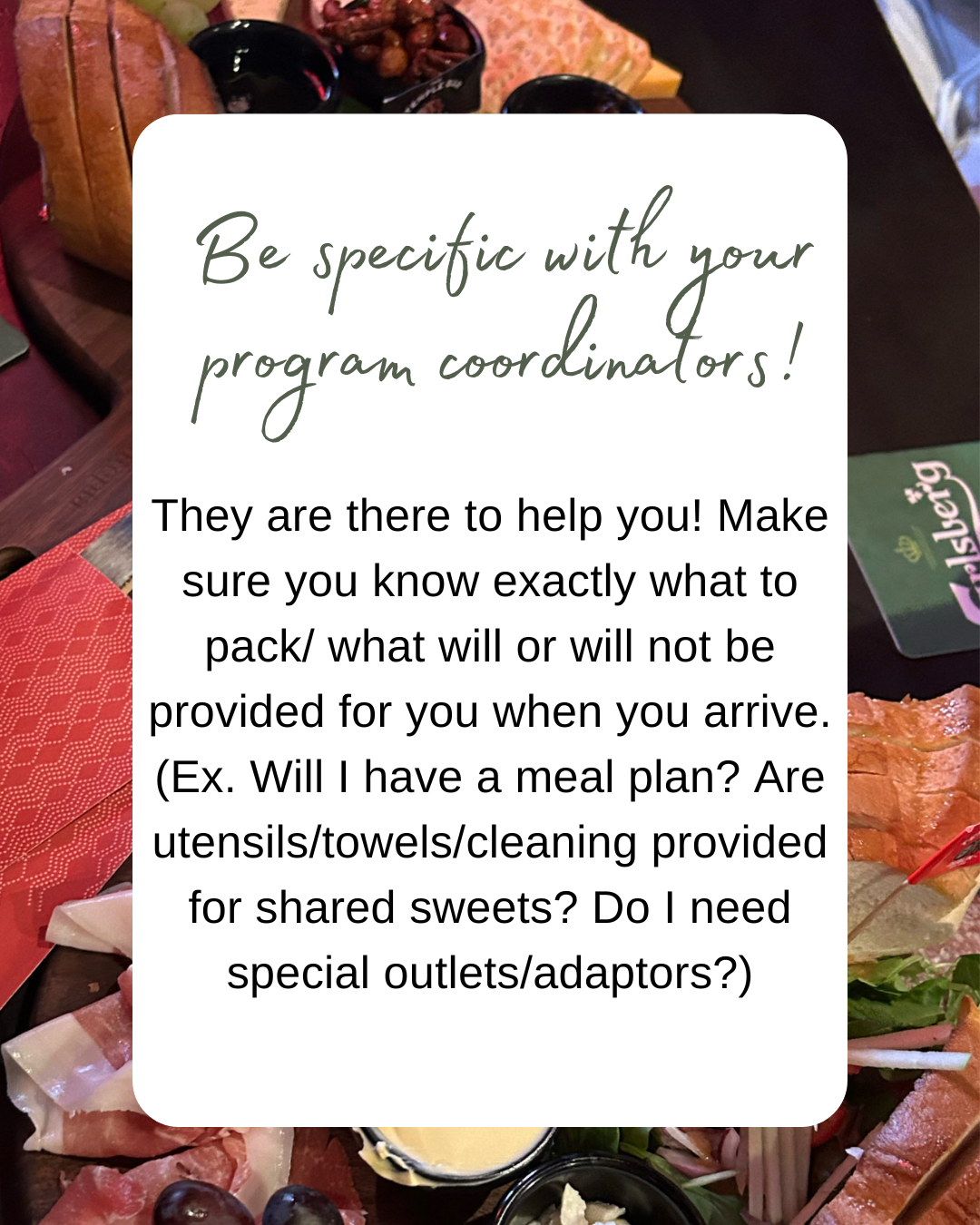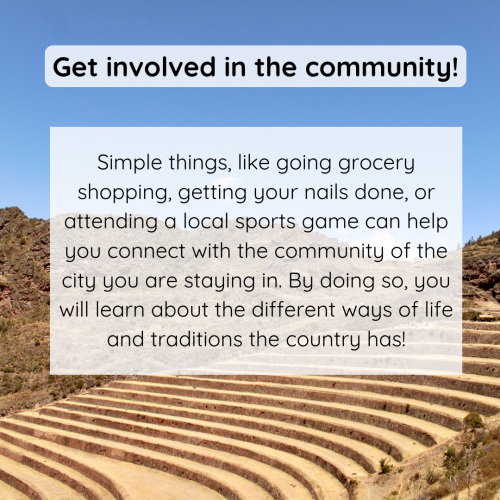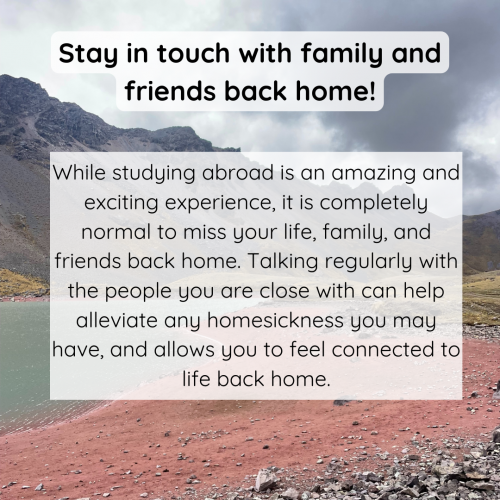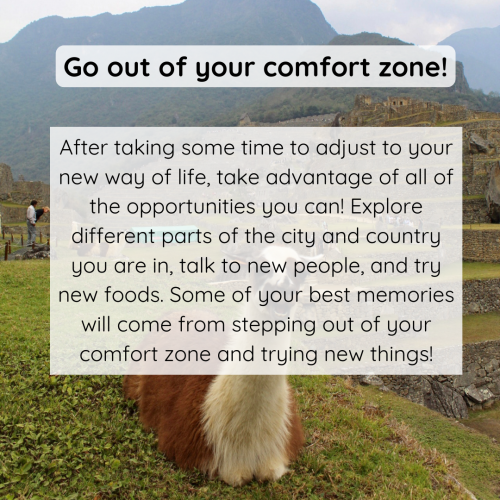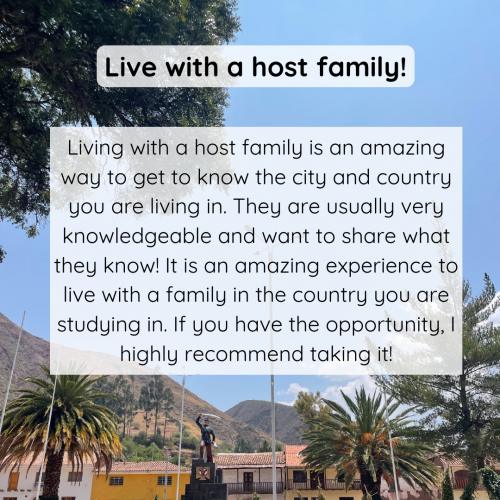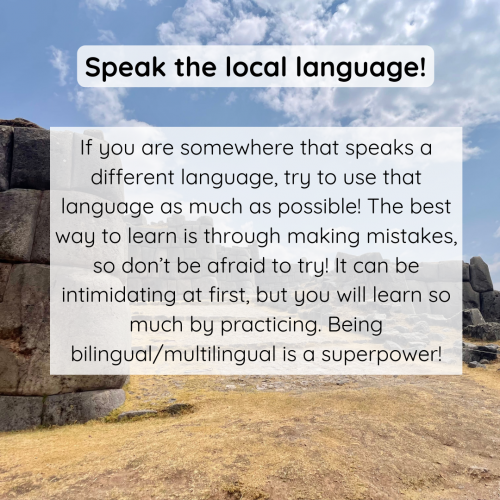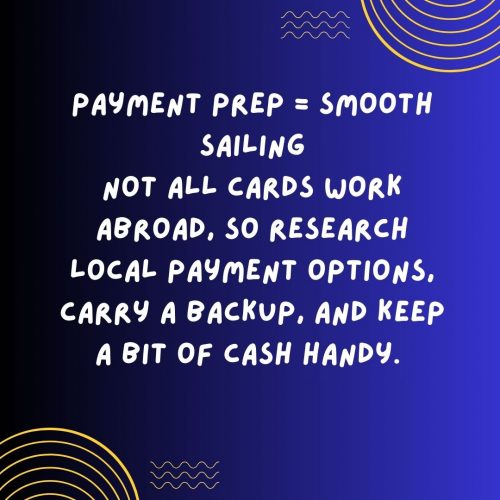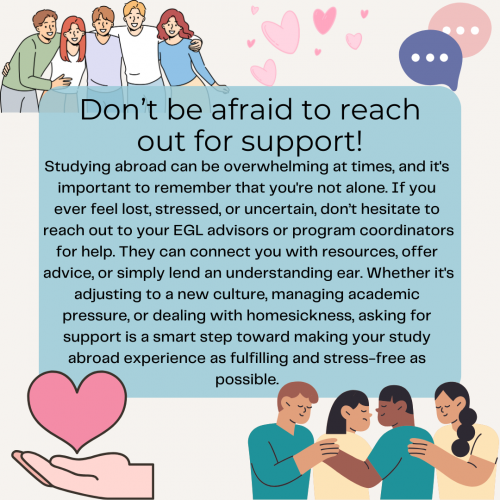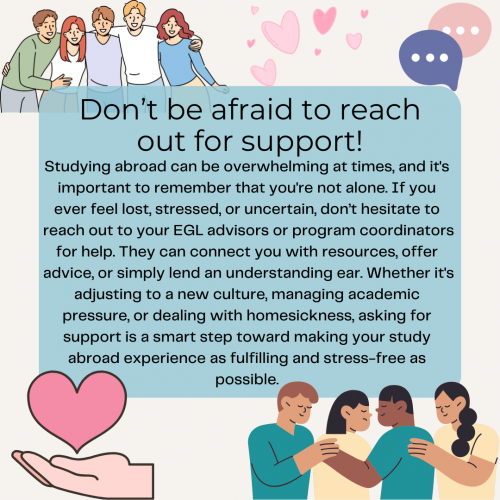Alexandra Montano – University of Birmingham
Finnian Jahnke – ISI Florence
John Womelsdorf – University of Stuttgart
Jasmine Jara – Education in Cape Town
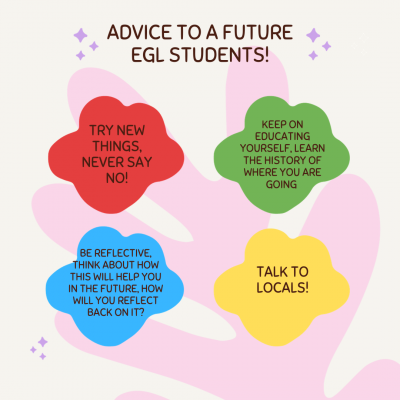
Julliana Bravo – University of Essex
How to make the most of your first week at your study abroad program
So you’ve decided to study abroad! Great choice. You’ve planned, packed, booked, and now you’re actually in your location of study! It can be exciting and maybe a bit overwhelming. Every program is different, but many exchange programs will have an orientation specifically for exchange students. My program had a week-long orientation even before classes started. Even if your orientation isn’t a week-long, or you don’t have one, here are some tips to make the most of your first week at your new university.
- Be okay with being out of a routine.
- The first week of study abroad can be hectic, jam-packed, and likely overwhelming. I was eager to have this week beforehand to acclimate to campus. That being said, accommodating a new country, setting, and routine can take some time and work. For this tip, I recommend understanding that it will take a while before you feel entirely comfortable in this new environment. However, your new university will feel like home just before you know it.
- Say YES!
- Depending on your program, orientation will likely be packed with fun events on campus. Go to these! Sports events, painting and craft making, social sports where you can play with your friends, campus tours, and more! These are a great way to acclimate to campus life and get to know your campus better.
- Meet as many people as you can.
- My biggest advice for studying abroad, no matter where you’re going, is to meet as many people as possible. Flatmates, classmates, other exchange students, local students, students in your major, students not in your major: Everyone! Don’t forget to get their contact information as well. Seeing a familiar face on campus is a great feeling and can lead to long-lasting friendships.
- Know when to prioritize yourself.
- Studying abroad is a fantastic experience. It can allow you to step out of your comfort zone and test your limits. That being said, know when to prioritize spending time with yourself. Once the first week has passed, take some time to think about how you can integrate a positive routine that prioritizes the things that are essential to you.
Aston Yip – University of Queensland Exchange Program
Elianny Ramirez – ISA: Semester at the American Business School Paris
Mary Jasmine DeVivo – University of Essex
Melissa Reyes – Honors Congressional Internship in D.C
Shivam Patel – University of Granada
Vishruti Patel – National University of Singapore
Make a variety of friends: Connect with both local people and other exchange students. Exchange students will share similar experiences, while local friends can give you insights into the culture.
Be open to the culture: People in Singapore are friendly and happy to help, so don’t be afraid to approach them, even if they seem reserved at first.
Learn the public transportation system: Singapore’s buses and MRT are efficient and affordable. Use Google Maps for routes, and combine buses and trains for the fastest travel.
Go to exchange events: Don’t be shy to attend events for exchange students. Everyone is looking to make friends, and you might have a great time and meet awesome people.
Keily De Jesus Murillo – Yonsei International Summer School
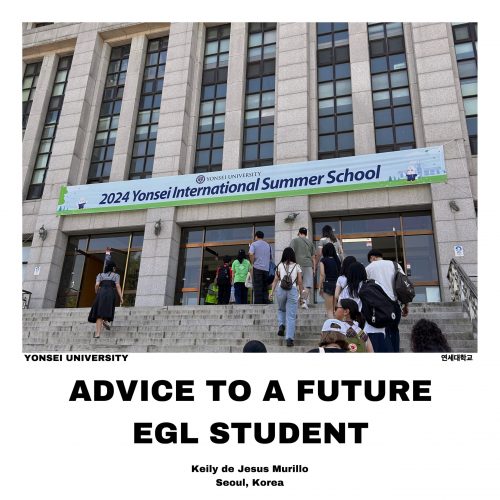 Slide 1
Slide 1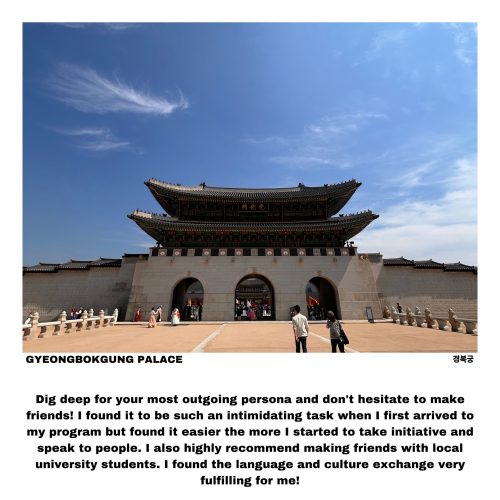 Slide 2
Slide 2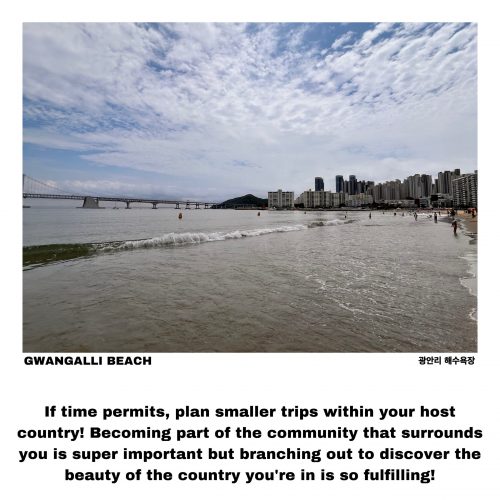 Slide 3
Slide 3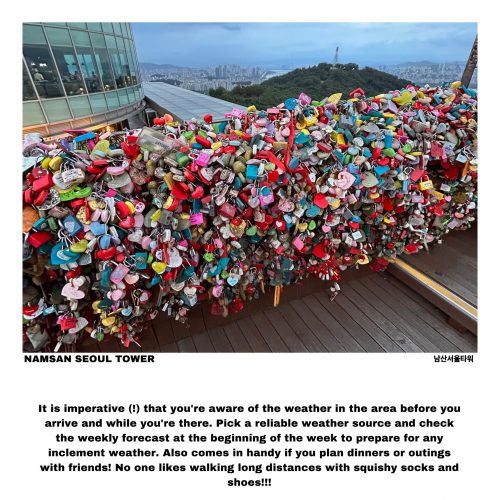 Slide 4
Slide 4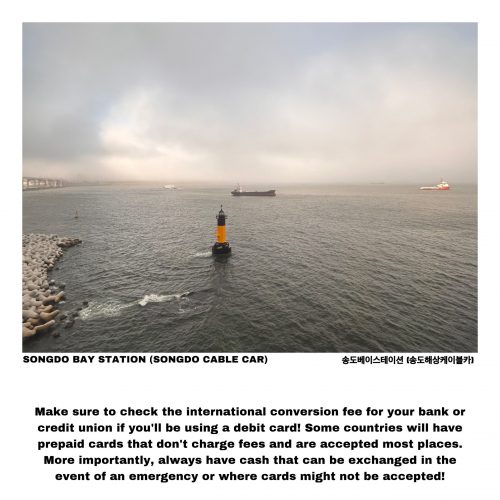 Slide 5
Slide 5
Karlie Mindek – Summer Music in Strasbourg
Hilary Flores – Digital Reflections of Korea
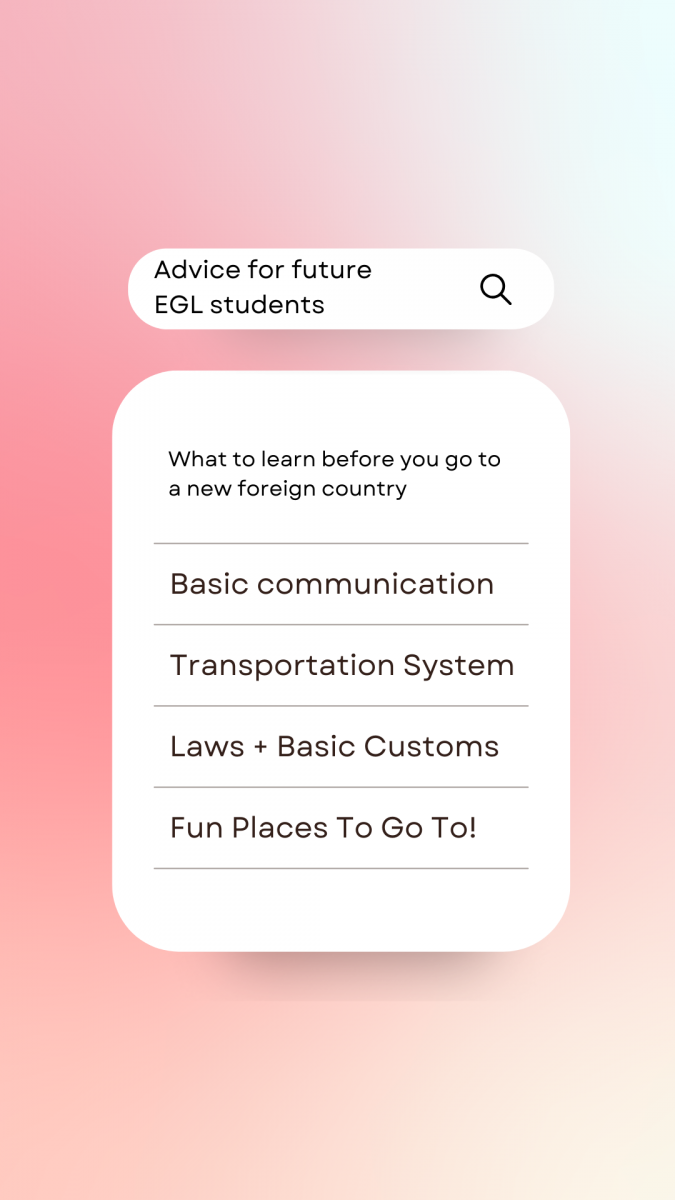
Antonio Hernandez – Summer Neuroscience in Salamanca
Sally Riley – University of Nottingham
Lauren Herrera – ISI Florence
Jesper Silberberg – Pontificia Universidad Catolica de Chile
Samantha Eldridge – Winter in Costa Rica
Medha Illindala – Summer Neuroscience in Salamanca
Amy Eweka – University of Konstanz
Gina Wright – ISA: Semester French Language and Liberal Arts at Institut Catholique de Paris
Madeline Kizer – ISI Florence
JiaLiAn Stolfi – ISI Florence
1.) Take virtual UConn courses while abroad!
a.) You can take classes abroad while simultaneously taking virtual UConn classes at no extra cost. By taking virtual UConn classes while abroad, you can work toward completing your plan of study and stay on track to graduate. Make sure to plan ahead. Be sure that the classes will be offered virtually in the semester you will be abroad. As a dual degree student, my schedule is extremely tight. I didn’t think I would have the chance to study abroad because of my course requirements for both majors. However, I was able to take 2 asynchronous classes abroad to complete my CLAS Arts requirement and my School of Business Business Writing requirement. This way, I could stay on track to graduate without having to compromise the opportunity of studying abroad.
2.) Save as much as you can prior to going abroad.
a.) Save about $5,000 for one semester to be comfortable. It’s crucial to have enough money to support yourself while abroad. On top of daily expenses such as food, transportation, and toiletries, there will be many other costs. Traveling, eating out, shopping, and fun school related activities are much more common abroad than at home. You’ll want to have enough money to be able to participate in these activities, especially because this time is when many people get close and become friends. You won’t be able to get a job if you run out of money so saving as much as you can is very important. I, along with many of my friends, spent about $5,000 in one semester.
3.) Pack smart.
a.) Check the weather of where you will be studying abroad as well as where you will be traveling. Pack clothing and essentials for both. For example, Florence has weather similar to CT, so I packed fall and winter clothes. However, I traveled to places such as the Amalfi Coast, the Dolomites, and Switzerland. In the Amalfi Coast, I needed summer clothes and bathing suits as we spent a lot of time at the beach. In the Dolomites, I needed activewear because we went on numerous hikes. In Switzerland, I needed snow pants and boots because we went skiing. By packing clothes that I needed both for day-to-day and my travels, I was able to save a lot of money and time.
4.) Be open-minded.
a.) Be open-minded at the beginning. It can be very overwhelming to be in a new country surrounded by people you have never met. The first few days are the most important as you will be introducing yourself and meeting all of your classmates. Try to talk to everyone by sharing your past, your interests, and your goals for your time abroad and then narrow down who you would like to be friends with. One of my biggest regrets is not being as open-minded in the beginning because I was nervous, shy, and tired but I wish I had been. Although the entire experience is nerve-wracking, try to remember that it will be worth it and fun in the end.
Chloe Starr – ISI Florence
Fabiana Atencio Flores – Umbra Institute General Studies Program
Meghan Kaht – Business and Economics London
Michelle Eweka – The University of Granada
Ademide Ogunsina – ISI Abroad Florence – Summer Session 1
Charley Damico – Summer Neuroscience in Salamanca
Michael Chung – Summer Sustainable Cities: Zürich
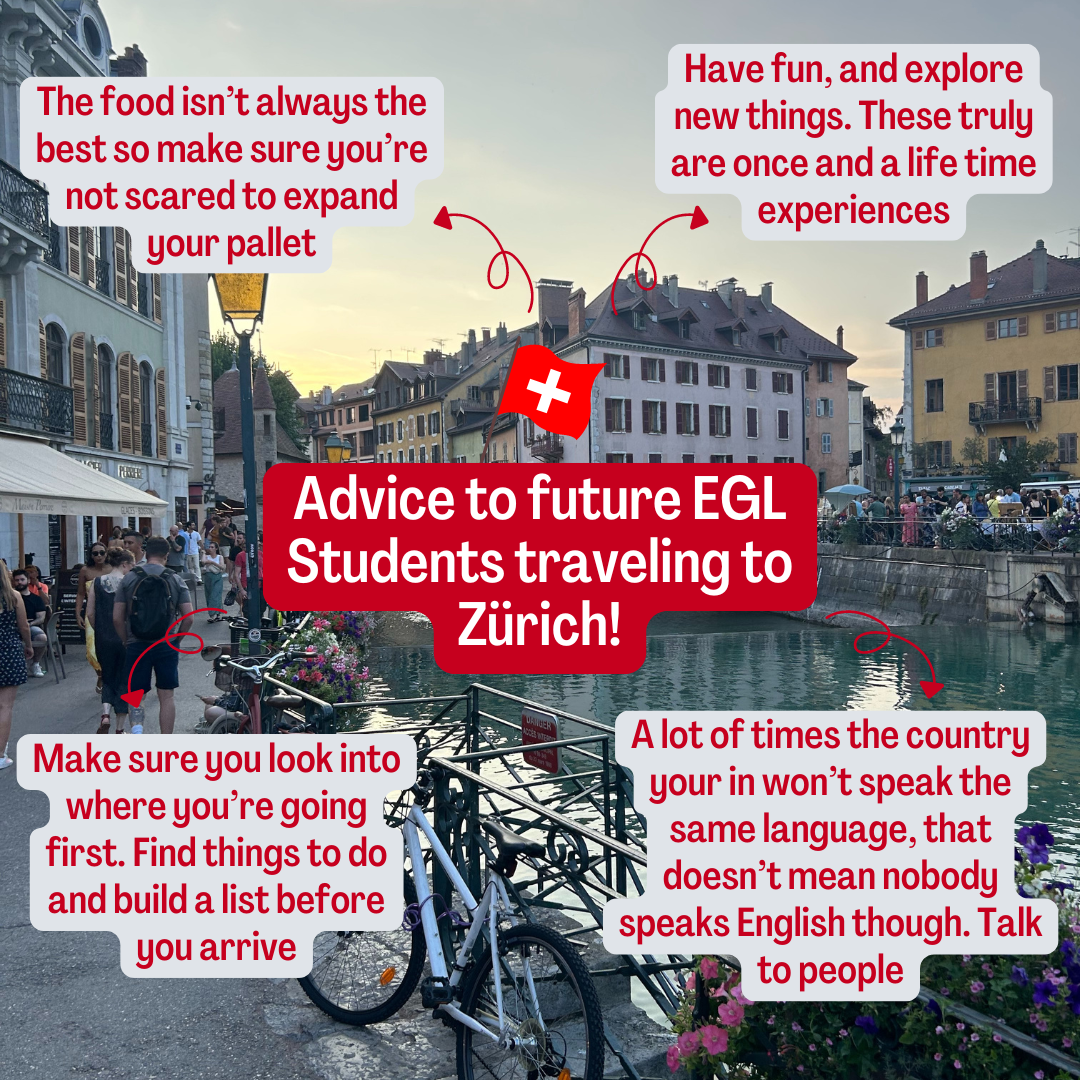
Keshav Desibhatla – CEPA Foundation – Intercultural Leadership Program in Strasbourg, France
1. Be alert, be aware – As with any new place when we travel, it is easy to get distracted by landmarks, food, and people. It is important to embrace the local culture as much as possible. That said, you should never let your guard down. Keep your passports, wallet, and other valuables close to you. Especially on public transportation, be extra careful since those are pickpocket hotspots.
2. Speak the local language – Whether you are fluent or only know how to greet people, conversing in the local language is one of the best ways to fully immerse yourself in the community. I learned French in high school and have not spoken it
since then. Although it was tempting to resort to English, speaking French again after a long time was not as daunting as I thought it would be. Even when I messed up with a taxi driver for example, we smiled and laughed it off together.
3. Pace yourself – Depending on the length of your program, you should consider how often you are willing to take adventures. My program was only one month long, so I pushed myself to spend as much time as possible outside of my residence. Although it was exhausting at times, I ended the program without any regrets as I traveled to Luxembourg and Switzerland on day trips.
4. Stay active – As with any routine, it is important to stay physically active. Since Strasbourg is a rural town, I went on evening walks and runs across the vast countryside. Although I was used to an indoor gym environment, I appreciated this change of scenery. Sunsets took place later in the night, so I could maximize the sunlight as well.





